
The Gospel Coalition
In the spirit of D. A. Carson’s New Testament Commentary Survey, TGC Council members, staff, and expert writers have worked together to compile an annotated list of the best introductory, preaching, and scholarly commentaries on each biblical book.
This project leverages the collective wisdom of scholars and church leaders who have devoted years of their lives to training the next generation in biblical scholarship and expositional preaching. Our goal has been to serve pastors and ministry leaders in local churches by pointing them to the best resources available. You’ll find our commentary picks for each book of the Bible listed below.
This project leverages the collective wisdom of scholars and church leaders who have devoted years of their lives to training the next generation in biblical scholarship and expositional preaching. Our goal has been to serve pastors and ministry leaders in local churches by pointing them to the best resources available. You’ll find our commentary picks for each book of the Bible listed below.
Libraries


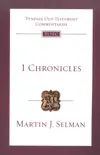

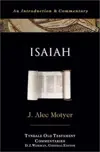

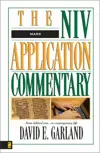

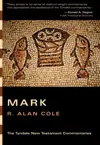

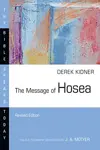

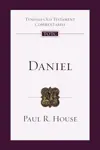

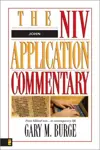

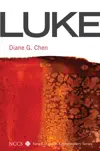

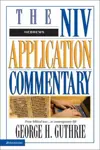

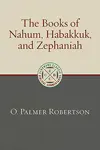

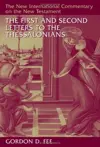

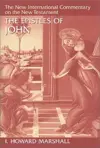

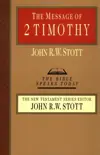

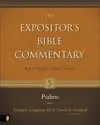

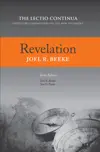

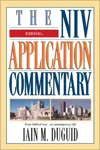

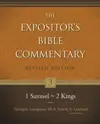

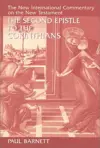

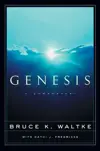

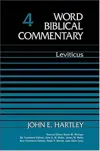

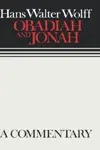

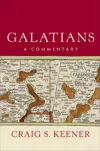

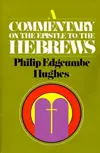

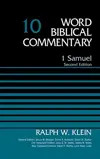

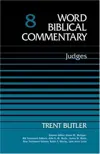

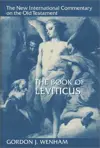

Reviews
The Second Letter to the Corinthians. PNTC. Eerdmans, 2014.
Unlike many commentaries, Seifrid doesn’t catalog and evaluate the opinions of modern scholars. Instead, he provides a sustained exegetical argument for his own reading of the letter and its theology. Seifrid’s theological reflections are rich and rooted in a Reformational Lutheran understanding of justification by faith.
[Full Review]
2 Corinthians. BECNT. Baker Academic, 2015.
Guthrie’s commentary is a technical guide to the letter’s Greek syntax and historical context, but his detailed exegesis doesn’t obscure the reader’s big-picture perspective. That’s because Guthrie never loses sight of the apostle’s pastoral priorities.
[Full Review]
The Second Epistle to the Corinthians. NIGTC. Eerdmans, 2005.
This lengthy and technical treatment of the epistle is one of the best available on the Greek text. The thorough introduction interacts with scholarly debates about the letter’s unity. But though it’s designed for scholars with a working knowledge of Greek, the commentary as a whole retains a pastorally sensitive eye for application.
[Full Review]
2 Corinthians. CSC. Holman Reference, 2021.
Carson described Garland’s 1999 commentary in the NAC series as “probing in the theological arena.” The revised edition includes more than a hundred additional pages, showing the author’s careful engagement with the last two decades of scholarship. Garland’s prose is incisive and compelling, and his emphasis is on how Paul clarifies the implications of the gospel.
[Full Review]
The Second Epistle to the Corinthians. NICNT. Eerdmans, 1997.
A well-written academic commentary that, says Mathison, “is so well written that one can easily read it straight through,” and not merely consult it as a reference work. It provides a particularly rich treatment of the letter’s social and historical background with strong biblical-theological reflections; the author takes pains to tie together various theological themes from the Pauline corpus.
[Full Review]
2 Corinthians. IVPNTC. InterVarsity Press, 1996.
Carson says this volume should be “considered a must for serious expositors.” She shows how Paul’s wisdom and strategies for confronting the problems in Corinth still serve as a helpful model for us as we respond to a culture marked by individualism and materialism.
[Full Review]
2 Corinthians. REC. P&R Publishing, 2023.
Drawing on his rich ministry experience, Casto combines faithful interpretation with heart-searching application. His sermonic approach makes the apostle’s message clear and relevant for the contemporary church.
[Full Review]
2 Corinthians: Power in Weakness. PtW. Crossway, 2012.
Hughes shows how today’s church has much in common with ancient Corinth. His commentary models expositional preaching and sound application. It’s a concise and helpful resource to consult during sermon prep.
[Full Review]
Galatians For You. GWFY. The Good Book Company, 2013.
In this expository Bible study guide to Galatians, Keller explains the letter’s background, the text’s meaning, and the book’s theology in an accessible way. Whether used for personal devotions or as a resource for teaching, readers will appreciate Keller’s close attention to the text and his trademark gift for clear and insightful explanation.
[Full Review]
The Message of Galatians. BST. InterVarsity Press, 1993.
Stott’s commentaries are consistently helpful for those doing Bible studies, leading small groups, and teaching Sunday school. This volume is a good resource for any reader ready to go beyond the notes in a study Bible. Stott does a masterful job of combining exposition, sound theology, and careful application in a way that’s accessible and engaging—highly recommended!
[Full Review]
Galatians. CSC. Holman Reference, 2020.
George’s revised commentary is a helpful work, targeted for the mid-level range. He writes clearly and identifies key historical factors to situate readers within the interpretive discussion. George considers recent scholarship but focuses on exegetical and theological concerns. He offers sound interpretive decisions with practical application
[Full Review]
Galatians. NCCS. Wipf & Stock, 2020.
Williams’ outstanding commentary makes Galatians accessible to the ordinary reader. He converses with the ancient world from which Galatians was born and modern discussions of the letter. Readers will profit from his careful exegesis, understanding of Paul’s theology, and contemporary application.
[Full Review]
Interpreting Galatians: Explorations in Exegetical Method. Baker Academic, 2001.
Silva does a fine job digesting academic scholarship on Galatians (and Pauline theology more generally) for the expositor in a way that’s clear and concise. He serves the preacher with his sensitivity to exegetical, biblical-theological, and systematic-theological concerns.
[Full Review]
Galatians. ConC. Concordia Publishing House, 2014.
Written from a confessional Lutheran perspective, Das interacts with positions from the New Perspective on Paul, presenting a reasonable way to reconcile the diverse opinions on the letter. Das also focuses on the Galatian Christians’ understanding of the relationship between the Old and New Testaments, and he illuminates how the contemporary church can learn from the early church’s theological questions.
[Full Review]
Galatians. EBTC. Lexham Press, 2021.
This commentary traces the argument of Paul’s most polemic letter with detail and rigor. Harmon plumbs Galatians’ theological depth, showing Paul’s defense of how history and Scripture must be interpreted in light of Christ’s arrival. Readers searching for assistance on Greek formulations, historical matters, the structure of Paul’s argumentation, exegetical details, and theological emphases will find it all in this volume.
[Full Review]
Galatians: A Commentary. Baker Academic, 2018.
When it comes to detailed information on the historical, cultural, and social context of Galatians, Keener’s work is unparalleled. His work enables the pastor and scholar to better understand these crucial contexts.
[Full Review]
Galatians. BECNT. Baker Academic, 2013.
Moo’s line-by-line exposition blends careful attention to the details of the Greek text with thoughtful theological reflection. His extensive and nuanced engagement with a wide range of scholarship on Galatians provides a helpful window into the wide range of interpretive issues in the letter.
[Full Review]
Arnold, Clinton E. ed. Galatians. ZECNT. Zondervan, 2010.
A prime example of how to write a commentary that will serve both pastors and scholars. This commentary engages the grammar, syntax, and rhetorical structure of the Greek text and helps readers to see Galatians in light of Paul’s broader theology. Schreiner also fully engages the critical debates about Galatians’ historical and contemporary significance. As Carson says, “It is simply written but enables pastors and students to see what the exegetical options are and to work through the Greek text without too much technical detail.”
[Full Review]
“Ephesians” in Ephesians–Philemon. ESVEC. Crossway, 2018.
Merkle’s theologically sound and pastorally wise resource will help a broad range of readers understand and apply the book of Ephesians. One particular strength of Merkle’s commentary is his attentiveness to how Ephesians fits within the larger biblical storyline.
[Full Review]
The Message of Ephesians. BST. InterVarsity Press, 1991.
Stott’s exposition shows the relevance of the Ephesians text for the contemporary church. Though many years have passed since he originally wrote, Stott’s portrayal of Paul’s vision for “God’s New Society” remains crucially important. Stott writes with clarity and winsomeness, and in a way accessible to all readers.
[Full Review]
Ephesians. TNTC. IVP Academic, 2019.
Bock shows how Paul uniquely connects gospel doctrine, power, and encouragement to the lives of the Ephesian believers. Bock emphasizes how God’s will revealed in Christ reorients believers’ lives toward unity, mutual respect, submission, and love.
[Full Review]
The Letter to the Ephesians. PNTC. Eerdmans, 2023.
Campbell’s excellent commentary provides a clear and helpful exposition of the text. It’s informed by his extensive knowledge of Greek yet is full of theological insight. Readers will appreciate Campbell’s ability to balance the technical aspects of the letter with accessibility.
[Full Review]
Ephesians. REC. P&R Publishing, 2009.
This commentary based on Chappell’s sermons reflects his love for Scripture and pastoral heart. Preachers will be helped by this redemptive-historical, homiletical commentary that unfolds Paul’s glorious description of the ultimate triumph of the church in Christ. Chappell handles both difficult doctrines and difficult points of application with conviction and care.
[Full Review]
Ephesians. ZECNT. Zondervan, 2010.
Arnold’s commentary provides an accessible discussion of the Greek of each passage. He diagrams the text in English and includes a “Theology in Application” section that offers helpful commentary on how the text relates to contemporary Christians.
[Full Review]
Ephesians. EEC. Lexham Press, 2015.
While interacting with recent scholarship, Baugh examines first-century sources to show what Paul’s words meant in their ancient context. He translates the original text, outlines the passage, and offers commentary and theological insight from a Reformed perspective. Readers will appreciate Baugh’s focus on the good news in this rigorous work.
[Full Review]
The Letter to the Ephesians. NICNT. Eerdmans, 2020.
Cohick’s comprehensive and up-to-date treatment which replaced F. F. Bruce’s commentary in the series affirms Pauline authorship and shows how he develops key themes in the epistle. Cohick’s expertise in first-to-third-century Roman culture enables her to set the letter firmly in its historical context. By doing so, she enlightens scholars and teachers on the cultural and familial structures that affect our understanding of Paul’s words today.
[Full Review]
Ephesians: An Exegetical Commentary. Baker Books, 2002.
Hoener’s hefty volume is a solid and comprehensive evangelical resource on this epistle. He compellingly argues for Pauline authorship and for the Ephesians as the original recipients, and he scrutinizes nearly every textual, lexical, grammatical-semantic, and historical issue. Note that the author’s dispensational theology rings through in several places.
[Full Review]
Ephesians. BECNT. Baker Academic, 2010.
Thielman brings his considerable understanding of Pauline theology and his exegetical skill together to produce an outstanding commentary. He makes a strong case that Ephesians is an authentic Pauline letter, and his verse-by-verse treatment also does an excellent job setting the text in its Graeco-Roman and Jewish context.
[Full Review]
Genesis. TOTC. InterVarsity Press, 2008.
Though somewhat dated, Kidner’s commentary offers an excellent and concise explanation of the text with a redemptive focus. He fearlessly tackles the major issues raised by the book including how the Genesis account of creation squares with modern science.
[Full Review]
Genesis: A New Commentary. Hendrickson, 2016.
Kline’s posthumously published commentary on Genesis distills his mature views on the book of Genesis and its relation to Scripture as a whole. Following an introduction that addresses the canonical function, literary-thematic framework, theological story, and authorship of Genesis, Kline separates the text into ten structural divisions and offers an insightful interpretation of each.
[Full Review]
Genesis. 2 Vols. EPSC. Evangelical Press, 2003.
Currid is a Reformed scholar who treats the text thoroughly. He emphasizes practical application and a redemptive focus on Christ.
[Full Review]
Genesis. 2 Vols. NAC. Broadman & Holman, 1996.
Mathews’ exceptionally detailed discussion of the biblical text handles disputed passages with sensitivity. His high view of Scripture is reflected throughout his discussion. An important work for pastors to consult.
[Full Review]
Genesis 1–11. CSC. Holman Reference, 2023.
Mathews’ exceptionally detailed discussion of the biblical text handles disputed passages with sensitivity. His high view of Scripture is reflected throughout his discussion. An important work for pastors to consult.
[Full Review]
“Genesis” in Genesis–Leviticus. REBC. Zondervan, 2008.
Sailhamer tends to avoid weighing in on controversies and instead focuses on Genesis’s literary beauty, emphasizing its unity and intertextual connections with other books in the Pentateuch. He highlights recurring themes like obedience and faith, the good land, the younger brother surpassing the older, and narrative retellings.
[Full Review]
Creation and Blessing: A Guide to the Study and Exposition of Genesis. Baker Books, 1997.
Ross divides Genesis into more than 60 units and then guides pastors to understand each section’s structure and synthesize its message. For each section, he suggests an exegetical and expository outline to aid the pastor in preparing sermons.
[Full Review]
The Book of Genesis. 2 Vols. NICOT. Eerdmans, 1995.
A magnificent tool for exegesis with an enormous store of information and sound analysis. Hamilton, an Asbury University professor, interacts extensively with Wenham’s earlier commentaries, arguing for a ten-division structure of the book.
[Full Review]
Genesis. THOTC. Eerdmans, 2008.
McKeown sees Genesis as the foundational sourcebook for biblical theology. He begins with exegesis of the Hebrew text, highlighting the recurrence of key words, phrases, and themes throughout the book. He also draws attention to passages particularly pertinent to Jewish readers during the post-exilic period.
[Full Review]
Genesis: A Commentary. Zondervan Academic, 2001.
Waltke explores Genesis as “theological literature” while giving attention to the flow and development of the plot and literary structure that shapes the book’s message. He provides helpful exegetical notes that address key theological and social issues such as ecology, homosexuality, temperance, evil, prayer, and obedience.
[Full Review]
Genesis. 2 Vols. WBC. Thomas Nelson, 1987.
Wenham’s commentaries offer a detailed exposition of the text with sound judgments on difficult passages. Not only does he provide helpful comments on the semantics of Hebrew words, he is also sensitive to word order and other syntactic matters beyond mere word study. The volumes exhibit a high view of Scripture and treat the text with great respect, displaying an excellent grasp of contemporary scholarship.
[Full Review]
Exodus. UBOT. Hendrickson, 2008.
Bruckner provides a reasonably detailed exposition of Exodus that explains its theological significance in a way that’s accessible for introductory-level readers. Additional notes discuss more technical matters for preachers and advanced students.
[Full Review]
The Message of Exodus. BST. InterVarsity Press, 2005.
Motyer’s commentary is an accessible guide to the Exodus text. He offers a helpful overview that explores God’s character and faithfulness to his covenant promises.
[Full Review]
Exodus. TTCS. Baker Books, 2016.
Alexander provides all the tools a pastor needs to communicate the Exodus text effectively. The carefully selected preaching units and focused commentary allow pastors to grasp the big idea and key themes of each passage of Scripture.
[Full Review]
Exalting Jesus in Exodus. CCE. Broadman & Holman, 2014.
Merida’s commentary contains fifteen expositions, perfectly designed for a four-month sermon series. Merida helps readers to see Christ in each passage and applies each passage devotionally.
[Full Review]
Exodus: Saved for God's Glory. PtW. Crossway, 2005.
Ryken is a master preacher and writer. His commentary contains helpful illustrations and wise applications that are biblical, historical, theological, and practical.
[Full Review]
Exodus. SGBC. Zondervan, 2021.
Wright’s commentary is outstanding. Exegetically sound, theologically and pastorally aware, and crystal clear, it explains the text well and includes sections with great discussions of application to today’s context.
[Full Review]
Exodus. ApOTC. IVP Academic, 2017.
Alexander unpacks how the book of Exodus provides an important paradigm for understanding God’s work of salvation—salvation with the goal of creating a holy nation. While addressing issues raised by critical scholarship, Alexander’s interest lies in the significance of the text for biblical theology.
[Full Review]
Exodus. JPSBC. Jewish Publication Society of America, 1991.
A clear, concise, and exegetically strong commentary. Sarna is especially aware of the larger ancient Near Eastern context within which Exodus was written. He doesn’t provide wider theological discussion or application.
[Full Review]
Exodus. NAC. Broadman & Holman, 2006.
Stuart’s commentaries demonstrate exegetical detail and keen knowledge of ancient cultures, grammar, and theology. This strong resource concentrates on theological exegesis while providing practical, applicable exposition.
[Full Review]
Leviticus. TOTC. InterVarsity Press, 2008.
Large portions of the New Testament cannot be understood at all apart from Old Testament concepts like priesthood, blood sacrifice, and atonement. With this concise work, Harrison illuminates these concepts within their Old Testament context, providing needed background for Christians to understand how they’re employed in the New Testament.
[Full Review]
Leviticus. TOTC. Inter-Varsity Press, 2013.
A fantastic entry-level work for Bible readers, teachers, and students. Sklar introduces us to the world of ancient Israel’s laws and rituals with clarity, helping church members see how the law leads to Christ
[Full Review]
The Message of Leviticus (Rev. ed.). BST. IVP Academic, 2022.
Tidball’s work is exegetically sensitive, apologetically aware, and theologically deep. He doesn’t simply distill others’ work but helps the reader to wrestle with the text on his own.
[Full Review]
Teaching Leviticus: From Text to Message. PT. Christian Focus, 2022.
Harper’s guide to Leviticus is exegetically robust, theologically rich, and full of helpful ideas for contemporary applications. It handles the details well while staying focused on the big picture of Leviticus.
[Full Review]
Holiness to the Lord: A Guide to the Exposition of the Book of Leviticus. Baker Academic, 2006.
Both exegetically rigorous and homiletically helpful. Each chapter provides concise but solid exegesis of the text, gearing its comments to homiletical explanation and application.
[Full Review]
Leviticus. ZECOT. Zondervan Academic, 2023.
A theologically rich commentary for both pastors and scholars. Sklar works from the Hebrew (though knowledge of Hebrew isn’t necessary), and he’s thorough in providing Christ-centered applications for pastors. The application points for each chapter can be used as primary preaching or teaching points.
[Full Review]
Leviticus. WBC. Thomas Nelson, 1992.
Hartley interacts well with the Hebrew text and provides helpful thoughts on New Testament connections. He also evaluates modern critical perspectives on Leviticus.
[Full Review]
Leviticus. ConC. Concordia Publishing House, 2003.
An excellent interaction with the Hebrew text from a confessional Lutheran perspective. Kleinig sheds light on the text from archaeology, history, and extra-biblical literature. And through the method of ritual analysis, he examines the agents, enactment, and theological purpose of each set of instructions in Leviticus’s divine speeches.
[Full Review]
The Book of Leviticus. NICOT. Eerdmans, 1979.
The historical and cultural context Wenham provides is incomparable and has stood the test of time. He shows readers both what the text meant in its original context and what it means for the New Testament believer in Christ.
[Full Review]
The Message of Numbers (Rev. ed.). BST. IVP Academic, 2022.
Brown shows how Numbers’ message speaks to our contemporary world—a world that lacks firm spiritual and moral foundations. Through Numbers, God’s people see how God journeys with us as he provides love, freedom, and certainty.
[Full Review]
Numbers. EPSC. Evangelical Press, 2009.
With a background in Syro-Palestinian archaeology and an evangelical Reformed perspective, Currid’s commentary is thorough, practical, and straightforward. He helps the reader grasp the text’s meaning and make simple applications.
[Full Review]
Numbers. TOTC. InterVarsity Press, 2008.
Concise and clear, Wenham gets to the meat of each passage right away. His short and informative commentary also provides helpful applications for the Christian reader.
[Full Review]
Numbers: God's Presence in the Wilderness. PtW. Crossway, 2006.
Duguid’s understanding of the flow of Numbers is masterful. His division of the book reflects not its geographical progress (the traditional view) but its spiritual progress. This rich understanding leads Duguid to a number of helpful applications.
[Full Review]
“Numbers” in Numbers–Ruth. REBC. Zondervan, 2012.
Allen provides more exegesis than other preaching commentaries. He sees Numbers as a necessary component in the building of a balanced and informed biblical theology.
[Full Review]
Teaching Numbers: From Text to Message. PT. Christian Focus, 2013.
Reynolds sees Numbers’ relevance for a present-day wandering generation. He highlights how the text points readers to return to Christ.
[Full Review]
Numbers. SGBC. Zondervan, 2023.
A clear and concise exegetical discussion that keeps larger issues of biblical theology in view. Sklar offers ample application and demonstrates sensitivity to Numbers’ apologetic issues, providing helpful comments on how they might be addressed.
[Full Review]
The Book of Numbers (2nd ed.). NICOT. Eerdmans, 2022.
One of the most thorough exegetical treatments of the Hebrew text from an evangelical perspective. Ashley aids readers by interacting well with both the Hebrew text and scholarly debates while remaining true to the book’s divine purpose and authorship. He possesses the unusual ability to engage readers in these areas even when his readers’ language skills are not up to his considerable level. Note that Ashley is less sure of Mosaic authorship in his second edition.
[Full Review]
Numbers. WBC. Thomas Nelson, 1984.
Budd divides the book of Numbers into three sections: the community at Sinai (1:1–9:14); the journey―its setbacks and success (9:15–25:18); and final preparations for settlement (26:1–35:34). From this outline, the author shows the formative influence the Jewish ceremonial laws had in transforming the children of Abraham into the nation of Israel.
[Full Review]
Numbers. JPSBC. Jewish Publication Society of America, 1990.
Jewish commentators are incredibly helpful for Christians working in the Pentateuch. The rabbis have thought about these texts for centuries and often have insightful things to say. Among Jewish readers of Numbers, there’s no one more helpful than Jacob Milgrom. He has insights on every page. Note that while he’s often commenting on the final form of the text, he is working broadly from a higher critical perspective.
[Full Review]
Deuteronomy. EPSC. Evangelical Press, 2006.
In this commentary, Currid shows that Deuteronomy’s purpose is to teach the people of God how to obey him in every area of life. His excellent exegesis is followed by a section of helpful application
[Full Review]
Deuteronomy. UBOT. Hendrickson, 1996.
An unparalleled starting point on Deuteronomy. Wright’s work is fresh, faithful, and beautifully applied to new covenant believers. He writes clearly and shows how passages fit into the larger context of the whole Bible. His commentary shines as a superb study partner for popular-level readers.
[Full Review]
Deuteronomy. NIVAC. Zondervan, 2012.
Reverent, careful, fresh, and stimulating. Block is perhaps the foremost voice on Deuteronomy, and though he tends to flatten the distinctions between the Old and New Covenants, readers will benefit from his engaging style. Block discusses the original context of Deuteronomy with clarity, and he underscores the importance of this book for the Christian life today. This will resonate with local church congregations.
[Full Review]
“Deuteronomy” in Numbers–Ruth. REBC. Zondervan, 2012.
A comprehensive yet succinct commentary. Readers will recognize Grisanti’s evangelical commitment to the authority of the Scriptures, the church, and the pastoral dimension of biblical interpretation.
[Full Review]
“Deuteronomy” in Deuteronomy, Joshua, Judges, Ruth, 1 & 2 Samuel. EBC. Zondervan, 1992.
In addition to its exposition and teaching outline, Kalland includes notes on textual questions and special problems for each expository unit. The commentary makes the more technical matters accessible to readers who may not be acquainted with Hebrew. In matters where marked differences of opinion exist, Kalland provides reasons for his views and deals fairly and irenically with opposing views.
[Full Review]
Matthew. TTCS. Baker Books, 2015.
Brown excels in everything a church Bible teacher would want to know and communicate. Her streamlined commentary includes faithful perspectives on disputed issues and worthwhile suggestions for how to teach the text. The commentary is easy to understand and abreast of the latest scholarship.
[Full Review]
Matthew. TNTC. InterVarsity Press, 1986.
France’s commentary is an abridged edition of his massive scholarly work in the NICNT series (see below). The fruit of his more detailed research appears here in summary form for greater accessibility.
[Full Review]
Matthew. CCC. Crossway, 1993.
For profound insights, accurate applications, helpful outlines, and memorable quotes, this commentary is timeless.
[Full Review]
Matthew: The Christbook and the Churchbook. 2 Vols. Eerdmans, 2004.
Bruner is exegetically insightful, historically engaging, and full of lovely quotes, thoughtful expressions, and brilliant turns of phrase. This commentary is a gold mine for the preacher and lay leader alike.
[Full Review]
“Matthew” in Matthew–Mark. REBC. Zondervan, 2010.
A staple in college and seminary libraries and in pastors’ studies worldwide, Carson’s volume marshals the most current evangelical scholarship. His commentary features detailed outlines, insightful expositions of passages, and overviews that illuminate the big picture. Carson masterfully balances details and readability.
[Full Review]
Arnold, Clinton E. ed. Matthew. ZECNT. Zondervan, 2010.
Osborne excels with this series’s format—literary context, outline based on the structure of the Greek but translated into English, the main idea of each passage of preachable length, verse-by-verse commentary, and best of all, wonderful and incisive insights into “Theology in Application.”
[Full Review]
Matthew. EBTC. Lexham Press, 2023.
Quarles’ commentary displays the fruit of the detailed analysis of the Greek text but focuses primarily on the theological implications of Matthew’s Gospel. This commentary will be a great help to expositors who want proclaim the great doctrines of the Christian faith from Matthew.
[Full Review]
Matthew. 3 Vols. ICC. T&T Clark, 1997.
A comprehensive three-volume work. These non-evangelical commentaries are technical and bring together the relevant aids to exegesis: linguistic, textual, archaeological, historical, literary, and theological. Mathison says that for those doing “exhaustive study . . . the work of Davies and Allison is indispensable.”
[Full Review]
The Gospel of Matthew. NICNT. Eerdmans, 2007.
France’s commentary may be the best single-volume commentary on the Gospel of Matthew for the pastor-scholar who is proficient in Greek. It doesn’t require a mastery of Greek but proficiency enables one to use it to full effect. The commentary presents a detailed discussion of the text that is the product of a lifetime of study and is attentive to the theological implications of each section. There are few things France has not considered in Matthew, and all his mature reflection, scholarly erudition, and pastoral wisdom help an exegetically-minded pastor think carefully about the text.
[Full Review]
The Gospel of Matthew. NIGTC. Eerdmans, 2005.
A fantastic resource for the language-proficient pastor preaching through Matthew week by week. Nolland’s commentary is careful, precise, learned, and researched. His work is exegetically observant, thorough, and wise.
[Full Review]
Mark. TNTC. InterVarsity Press, 1989.
Cole’s commentary is a high-quality, non-technical commentary. Readers will benefit from his work.
[Full Review]
Mark. NIVAC. Zondervan, 1996.
Garland provides a clear and concise exposition of the text that’s understandable for readers without technical training in Greek. As the NIVAC series ages, the “Contemporary Significance” sections at the end of each chapter will feel more dated. Nevertheless, there’s enough there in the suggested applications for lay teachers to get the idea and update them for current use.
[Full Review]
Mark. NAC. Broadman & Holman, 1991.
A theologically solid and reasonably concise tool for pastors to use as a first consult after they’ve done their exegetical study of the text. Because this commentary is unapologetically confessional and rooted in the evangelical tradition, it’s helpful to quickly confirm whether a pastor’s personal exegesis is on the right track early in the sermon preparation process.
[Full Review]
The Gospel according to Mark. PNTC. Eerdmans, 2001.
Edwards demonstrates clarity in his writing and care in his exegesis. His expertise in Mark’s Gospel is evident, but his writing remains accessible for readers who don’t have expertise in Greek. Tabb highly recommends this volume for its “insightful, responsible exegesis.”
[Full Review]
Mark: A Commentary on His Apology for the Cross. Eerdmans, 2000.
Among our pastoral recommendations, this one is the most massive and technical. But Gundry delivers just what he promises: a cross-centered commentary on Mark. By keeping Jesus at the center, Gundry stays on point in his explanations of the text’s meaning. He will help preachers do the same.
[Full Review]
The Gospel of Mark. NIGTC. Eerdmans, 2002.
Exegetical emphases live on the surface of this commentary so that a pastor who has done his homework before picking up this book will spot how the comments arise from the text’s grammar. France focuses on Mark’s theological coherence and pastoral vision. Even when he’s dealing with fine shades of meaning, he never loses sight of the why of Mark’s Gospel.
[Full Review]
Mark. BECNT. Baker Academic, 2008.
Stein’s careful exegesis demonstrates his skill in navigating redaction-critical issues. His excellent commentary begins each chapter with an introduction and overview followed by exegesis and exposition. He then concludes with a summary. This structure allows for easy skimming or focused study, whichever is required.
[Full Review]
Mark. ZECNT. Zondervan, 2014.
Strauss’s excellent commentary examines Mark’s Gospel in sixty-three units. As Tabb observes, Strauss walks through the Greek, offers his well-informed summaries of passages, and provides theological commentary. This resource will benefit pastors and students.
[Full Review]
Luke. NCCS. Wipf & Stock, 2017.
Chen’s commentary helps readers understand the world in which Jesus lived—one steeped in Jewish history and convictions, yet threatened by Roman power and culture. Chen’s interpretation will help readers fuse scriptural and modern horizons, and see both life and ministry applications.
[Full Review]
Luke. IVPNTC. InterVarsity Press, 1995.
Bock’s volume provides basic exegesis that summarizes the fuller comments in his massive BECNT volume (see below). It will benefit Bible teachers because it’s well-outlined with key principles, exposition, and application.
[Full Review]
Luke. TNTC. IVP Academic, 2022.
Replacing the venerable Leon Morris’s good work in the series, readers will find Perrin’s new commentary to be an excellent introductory-level resource.
[Full Review]
Luke 1–13: The Year of the Lord’s Favour. FB. Christian Focus, 2021.
Davis’s work is always readable, and his two volumes on Luke are no exception. Arising out of sermons, they contain illustrations along with careful and practical explanations of the text. Each passage is explained thoughtfully, with technical terms in bold, and footnotes that while limited indicate informed study of the text.
[Full Review]
The Gospel according to Luke. PNTC. Eerdmans, 2015.
Edwards focuses on the historical setting, narrative purpose and themes, and theological significance of the book. This commentary is a informed, stimulating, and sensible exegesis of the text that highlights how Jesus is the fulfillment of God’s saving purposes in the history of Israel. Tabb says it’s “eminently readable and consistently insightful and highly recommended for all students of Luke’s Gospel.”
[Full Review]
“Luke” in Luke–Acts. REBC. Zondervan, 2005.
Pao’s work supplements Liefeld’s initial publication, which already packed a great deal of astute content into a relatively small compass, making this non-technical commentary even stronger.
[Full Review]
Luke. 2 Vols. BECNT. Baker Academic, 1994.
Carson says Bock’s comprehensive treatment of Luke’s Gospel is “well-written and intelligent.” Bock gives a careful exposition of the Greek in its historical context, and he engages with all the scholarly questions about Luke’s historicity and sources. This set is the standard for serious students with knowledge of the original language.
[Full Review]
Arnold, Clinton E. ed. Luke. ZECNT. Zondervan, 2011.
Garland’s 1,000-plus-page commentary is user-friendly and an all-around gem despite its length. It adheres tightly to the ZECNT series format, and uses enough Greek that it belongs in this category though others without language knowledge can benefit from it as well. Garland consistently lands on the most persuasive approach to contested issues. His commentary is simultaneously strong at the exegetical level and helpful at the homiletical level. Tabb says, “Garland frequently references primary sources like Josephus and the Mishnah and notes important secondary sources while maintaining focused on the biblical text.”
[Full Review]
The Gospel of Luke. NICNT. Eerdmans, 1997.
Green’s commentary of nearly a thousand pages helps readers see broader literary connections, themes, and cultural background material. The commentary is thought-provoking and filled with thoughtful interaction with contemporary scholarship. Carson says its “forte” is “narrative historiography and discourse analysis,” but notes one downside of Green’s almost exclusively literary reading; this means Green downplays discussion about the relation between Luke and the other Synoptics, including the major historical issues implicit in such discussions.
[Full Review]
John. NIVAC. Zondervan, 2000.
Burge’s commentary is interpretively careful and accessible. He offers helpful insights into John’s historical, literary, and theological emphases as he seeks to connect the Gospel’s message to contemporary readers. This is a top-notch resource for lay leaders who desire a steak-and-potatoes guide to the Gospel.
[Full Review]
John. TNTC. InterVarsity Press, 2004.
Kruse shows how the fourth Gospel weaves its themes of belief and unbelief into a rich Christology. The commentary examines the text section by section, drawing out its main themes while offering clear, reliable, and relevant explanations.
[Full Review]
John. StAEC. Reformation Trust Publishing, 2009.
Sproul’s commentary on John is a relatively thin volume that makes the text accessible for lay leaders. Sproul’s strength was breaking down complex subjects into manageable pieces for a popular audience. His style is warm and personal, logical and clear, engaging and relevant. Some sections of the book of John are overlooked to keep the commentary streamlined, but the major themes of the book are addressed.
[Full Review]
The Gospel according to John. PNTC. Eerdmans, 1990.
Though published three decades ago, Carson’s commentary on John’s Gospel remains a treasured resource for pastors and students. Schreiner says it’s “the first choice for pastors, exegetically and theologically rich.” It blends top-notch scholarship with reverence, intellectual rigor with spiritual warmth. The hefty, eighty-page introduction covers issues like the book’s authorship, structure, and evangelistic purpose, and it includes a rich discussion of the Gospel’s theological emphases. Carson also gives sage advice on preaching from John. Tabb writes, “Throughout, the commentary is marked by clear, straightforward, penetrating exposition of the text.”
[Full Review]
John. 2 Vols. NAC. Broadman & Holman, 1996.
Borchert presents a clear and concise commentary that is easy to read and not overly technical; Greek is transliterated in most cases. It features substantial footnotes on nearly every page for further study if needed. The commentary is unapologetically confessional and rooted in the evangelical tradition so it’s a good first consult for busy pastors after they’ve done their initial work in the text.
[Full Review]
The Gospel according to John: A Theological Commentary. ECBC. Eerdmans, 2018.
A commentary ideally suited for pastors and Bible teachers whose primary interest is in John’s theology. The Dutch scholar effectively stresses the historical reliability and conceptual coherence of the Gospel of John through his interaction with major theological themes from church history. This balanced work is an exemplar of theological analysis and reflection.
[Full Review]
The Gospel According to St. John: An Introduction With Commentary and Notes on the Greek Text. Westminster John Knox, 1978.
Even a half-century later, Barrett’s one-volume commentary offers an unmatched engagement with John’s Greek text. Though Barrett wants to stand free from John’s historical claims, especially in the Passion narrative, Carson says this work is “nevertheless not only elegantly and lucidly written but also usually profound in its grasp of John’s theological message and rightly skeptical about many modern literary and historical reconstructions.” A pastor with even a small amount of Greek under their belt will benefit from his scholarly acumen and expansive knowledge.
[Full Review]
The Gospel of John: A Commentary: Two Volumes. Hendrickson, 2003.
Keener’s two-volume commentary reflects a rich, detailed engagement with John’s Gospel that’s informed by an extensive examination of primary sources and command of the scholarly literature. Keener’s accessible writing proactively addresses readers’ questions. His breadth of learning and rich interaction with the literature combine to make this reference work indispensable for serious students.
[Full Review]
John. ZECNT. Zondervan, 2016.
Klink aims to situate the Gospel of John “in its divine context as Christian Scripture” as well as “in its historical context” (p. 41). This is an outworking of a confessional approach that embraces the theological claims and the complete historicity of the biblical text (pp. 22–24). Klink outlines the Gospel into ten major sections. Tabb says, “He writes as a scholar-pastor, combining exegetical rigor, clear communication, and warm devotion to Christ.”
[Full Review]
The Gospel of John. NICNT. Eerdmans, 2010.
Carson wrote that Michaels “may have provided us with the best one-volume commentary on John.” Michaels’s writing style is superb, and insights abound on nearly every page. He is committed to unpacking the text as we have it, Carson notes, “and as a result, he avoids addressing many important historical issues.”
[Full Review]
The Gospel according to John (Rev. ed.). NICNT. Eerdmans, 1995.
Morris is one of the major conservative commentaries on John. It’s a mine of quotable material replete with references to earlier academic works.
[Full Review]
Acts. NIVAC. Zondervan, 1998.
Fernando’s commentary has outstanding sections on the book’s contemporary significance and international scope. The “original meaning” and “bridging contexts” sections are solid, but the book’s strength is its helpful sections on application.
[Full Review]
Let’s Study Acts. LSS. Banner of Truth, 2003.
Johnson’s volume provides succinct overviews of each passage, enabling the reader to get a grasp of the overall flow of thought quickly. His summaries include thoughtful explanations of the text informed by the book’s biblical-theological framework. They show how the Old Testament helps to illuminate numerous passages.
[Full Review]
“Acts” in Luke–Acts. REBC. Zondervan, 2005.
Bible teachers will be particularly helped by the detailed outlines, insightful expositions of passages (and verses), overviews that illuminate the big picture, and occasional reflections to give more detail on important issues. The transliterations and translations of Greek words enable readers to understand even the more technical notes.
[Full Review]
The Acts of the Apostles. PNTC. Eerdmans, 2009.
A first choice for pastors. Tabb says this outstanding commentary is “exegetically responsible, eminently readable, and consistently insightful.” Carson says the work reflects careful exegetical work “across the gamut of integral disciplines: text criticism, grammatical exegesis, historical considerations, literary criticism, and, above all, robust theological reflection.” All this is delivered along with nuggets of practical application. The digestible-in-length commentary is one-stop shopping, and Peterson’s theology makes it exceptionally rich.
[Full Review]
Acts. CSC. Holman Reference, 2022.
Schreiner’s new volume helpfully captures the book’s theological message. It’s a strong one-volume option for the book of Acts. The author focuses on the book’s theological and exegetical concerns, balancing rigorous scholarship with practical application.
[Full Review]
Acts. BECNT. Baker Academic, 2007.
Though Bock can greatly help those without Greek, his work provides plentiful help for those with Greek proficiency. His exegesis is right on target time and time again, as is his grasp of the relevant background, narrative flow, historicity, and contemporary significance. This is a thorough and competent commentary.
[Full Review]
Acts: An Exegetical Commentary. 4 Vols. Baker Academic, 2015.
Keener’s encyclopedic work of over 2,300 pages is the most thorough and detailed commentary available on Acts. The impressive range of topics covered showcases Keener’s earmarks: deceptively straightforward prose, great learning, and an impressive bibliography. The commentary includes a far-reaching introduction, numerous excurses on a variety of topics, and meticulous attention to the text of Acts with a wealth of primary sources that are especially beneficial to academic readers.
[Full Review]
Arnold, Clinton E. ed. Acts. ZECNT. Zondervan, 2012.
Schnabel’s outstanding commentary “combines meticulous research, sound exegesis, and a strong emphasis on the early Christian mission,” writes Tabb. It works with the Greek text but is accessible, clearly written, and strong on Graeco-Roman history and sources. The detailed historical research informs (rather than obscures) the meaning of the text and is coupled with a judicious explanation of textual details. Summaries of significant theological and practical themes conclude each of the commentary’s sections.
[Full Review]
Romans. TNTC. InterVarsity Press, 1985.
Bruce’s commentary is succinct, understandable, and both theologically and historically reliable. He presents helpful and relevant explanations of the text that focus on Paul’s main points: justification by faith, the relationship between the law and grace, and God’s ultimate purpose for Israel.
[Full Review]
The Message of Romans. BST. InterVarsity Press, 1994.
Stott is solidly evangelical with a pastor’s heart. With exuberant love and reverence for God’s Word, he offers readers relevant application points that are particularly helpful for teachers in local church groups.
[Full Review]
Romans. SGBC. Zondervan, 2016.
Bird combines careful exegetical work with lively prose, minimal technical jargon, and references to contemporary culture. Following the goal of this commentary series, he successfully sets Paul’s arguments within the big picture of the Bible’s grand narrative, modeling for readers how to do biblical theology.
[Full Review]
Paul's Letter to the Romans. PNTC. Eerdmans, 2012.
Kruse demonstrates sound judgment in exegesis and theological application. He doesn’t dodge problematic issues in the text, handling important topics with care. This reliable, erudite, and less lengthy work may be preferred by pastors and Bible teachers who are in a time crunch. Readers will pick up on Kruse’s enthusiasm for correctly interpreting the biblical text and encouraging the church to revere God.
[Full Review]
Romans. NIVAC. Zondervan, 2000.
Moo’s NIVAC edition distills his expansive thoughts on the epistle (see below) in a way that’s more digestible for a busy pastor. On those occasions when more exegetical detail is needed, this commentary points readers to his more expansive work in the NICNT. Moo’s work to bridge the gap from Paul’s world to ours, and his attempts to apply the text will surely spark new ideas for day-to-day application to congregants’ lives.
[Full Review]
“Galatians” in Romans–Galatians. ESVEC. Crossway, 2020.
Building on his years of scholarship and teaching the New Testament (and Paul in particular), Thielman leads readers through all the introductory, exegetical, and theological facets of Galatians needed for faithful exposition.
[Full Review]
The Epistle to the Romans. NICNT. Eerdmans, 1996.
Moo’s excellent commentary is meticulously researched, theologically sound, carefully written, and balanced in its treatment of those with whom it disagrees. The exegesis is consistently on point, and the author’s conclusions are well-reasoned and committed to evangelical theology.
[Full Review]
Romans (2nd ed.). BECNT. Baker Academic, 2018.
Schreiner interprets Romans with detailed precision and thoughtful theological insight. He thoroughly surveys and interacts with the scholarly landscape, providing robust support for his exegetical conclusions while analyzing the arguments of his conversation partners with charity and humility. On syntactical issues in key and hard passages, he walks the reader through the text by giving well-rounded theological and exegetical reasons for his decisions. Interestingly, Schreiner also outlines the twists and turns of his own biblical and theological journey with this letter during his decades of studying it.
[Full Review]
Romans. ZECNT. Zondervan, 2018.
While Thielman’s commentary is technical, immersed in biblical Greek, and uses in-text citations, it remains remarkably accessible. This work showcases Thielman’s mastery of the text and familiarity with the academic literature, yet it’s presented with simplicity. This is a theologically, historically, and linguistically reliable commentary.
[Full Review]
1 Corinthians. TNTC. IVP Academic, 2018.
Schreiner’s basic commentary replaces Leon Morris’s earlier work in the series. It’s a helpful exposition of the letter with clear-eyed interpretational work throughout.
[Full Review]
1 Corinthians For You. GWFY. The Good Book Company, 2021.
Wilson’s expository guide focuses on practical application, showing how grace shapes every church, even one as flawed as the church at Corinth. An excellent guide for personal devotions or a group study.
[Full Review]
1 Corinthians: Holiness and Hope of a Rescued People. FB. Christian Focus, 2000.
Barnett helpfully explains the letter’s background and meaning then makes clear, warm-hearted application to the church’s contemporary context.
[Full Review]
1–2 Corinthians. NCBC. Cambridge University Press, 2005.
The great benefit of Keener’s commentary is its lucidness. For the non-specialist, he simplifies complicated passages and arguments within 1 Corinthians. He also draws out the working of the Spirit with balance and grace—neither minimizing the Spirit’s charismatic-like working in Corinth, nor over-reading it for the non-Wesleyan or cessationist reader.
[Full Review]
I and II Corinthians. HNTC. Broadman & Holman, 2000.
As Derek W. H. Thomas notes, Pratt helpfully blends “exposition, theology, and application.” The commentary includes verse-by-verse descriptions, teaching outlines, and helpful discussion questions.
[Full Review]
1 Corinthians: A Shorter Exegetical and Pastoral Commentary. Eerdmans, 2006.
Built on the more extensive exegetical work from his NIGTC volume (see below), Thiselton engages the context and syntax of Paul’s epistle section by section and provides fresh sections of exposition (not found in the larger work). He shows how 1 Corinthians addresses competition and consumerism in our contemporary church context.
[Full Review]
1 Corinthians. ZECNT. Zondervan, 2018.
As the most recent of the academic commentaries on this list, it provides a reliable and up-to-date guide to the most of the scholarly literature on the epistle. Gardner’s writing is clear, and his work sheds light on both theology and pastoral application.
[Full Review]
1 Corinthians. BECNT. Baker Academic, 2003.
Garland’s introductions to each pericope give good insights on significant matters including definitions, passage structure, and text-critical issues. Within the comments on each passage, he draws out stylistic devices evident in the Greek text that aren’t necessarily evident in the English translations.
[Full Review]
The First Epistle to the Corinthians (2nd ed.). NICNT. Eerdmans, 2014.
One of the most thorough treatments of this Pauline epistle. Most reviewers note some weaknesses including his curious treatment of 1 Corinthians 14:33b–35 as an interpolation rather than as authentic to Paul. Fee’s argument for the continuation of miraculous gifts is cogent, even for readers who ultimately reject this interpretation.
[Full Review]
The First Epistle to the Corinthians. NIGTC. Eerdmans, 2000.
Carson describes this volume as “well written, accessible (for readers of this sort of series!), and penetrating.” The lengthy volume includes detailed exegesis and traces the history of the letter’s interpretation from the Church Fathers to today.
[Full Review]
“2 Corinthians” in Romans–Galatians. REBC. Zondervan, 2007.
An excellent overview of Harris’s reading of 2 Corinthians that’s more accessible than his massive volume in the NIGTC series (see below).
[Full Review]
2 Corinthians. TNTC. InterVarsity Press, 1987.
A great place to begin for a brief and basic introduction to this epistle. Kruse gives a helpful overview of the literary history behind the Corinthian correspondence. Then, he focuses on how Paul contrasts the old and new covenants, and how he emphasizes the Christian’s ministry of reconciliation.
[Full Review]
Basics for Believers: An Exposition of Philippians. Baker Academic, 1996.
A short, edifying exposition of the book for general readers. Readers will find it enriching and useful.
Philippians. NIVAC. Zondervan, 1995.
Preachers and teachers will find the NIVAC commentary by Thielman to be particularly useful for preparing Bible studies and Sunday school lessons. Thielman gives equal attention to the original context and contemporary application.
Philippians. IVPNTC. InterVarsity Press, 1999.
Fee’s mid-range commentary is a great resource for readers searching for a commentary that highlights the main points of the letter and provides clear application. It’s more accessible than his longer commentary (see below) and better suited for Christians who seek to glean from Fee’s extensive research without the technical details.
The Letter to the Philippians. PNTC. Eerdmans, 2009.
A balanced commentary written by a scholar who has also served as a local church pastor. Hansen’s commentary is a sure guide for interpreters. He tends toward traditional conclusions with respect to the highly disputed passages (e.g., Phil. 2:5–11; 3:9–10), but he always shows courtesy to theological opponents.
Philippians: A Mentor Commentary. Ment. Mentor, 2015.
Harmon’s exegetical study of Philippians showcases Paul’s attentiveness to the Old Testament. He carefully traces Paul’s argument and concludes each section with helpful suggestions for application.
The Epistle to the Philippians. BNTC. Hendrickson, 1998.
Bockmuehl’s commentary is good and accessible to students and Bible teachers who haven’t kept up their Greek. His expertise with the scholarly literature and Greco-Roman and Jewish background proves a major strength as he explores Paul’s theological concerns within the appropriate historical context. Carson notes “his treatment of the ‘form’ of God in the so-called Christ hymn is especially suggestive.”
Paul's Letter to the Philippians. NICNT. Eerdmans, 1995.
A masterful commentatary. It’s consistently accurate, accessible, and suitable for academics, pastors, and thoughtful Christian readers. Fee’s judicious exegetical decision-making and pastoral heart flow through the commentary. Carson says, “Fee could not be boring if he tried. The zest of his prose makes him exciting to read, and his scholarship is always rigorous.”
Philippians. 2 Vols. EEC. Lexham Press, 2017.
Keown’s two-volume commentary is the best Philippians commentary for Greek readers. It’s full of critical analysis of the background of the letter’s Greek text and incorporates deep insight into Paul’s intent. The book includes biblical, theological, and devotional commentary. It’s academic and critical yet it draws out the pastoral and missional dynamics in the letter that are relevant for today’s church.
Philippians (2nd ed.). BECNT. Baker Academic, 2005.
For those who want a volume that’s less imposing than Keown yet still thorough, we recommend the second edition of Silva’s commentary. Silva provides an excellent treatment of the Greek in Philippians. The author writes concisely and charitably about positions to which he’s opposed, yet remains reliable both theologically and linguistically. Silva traces the flow of Paul’s argument, and supports his reading by giving technical attention to the letter’s syntax.
“Colossians” in Ephesians, Philippians, Colossians, Philemon. ZIBBC. Zondervan, 2007.
Clinton Arnold has written extensively on the “Colossian syncretism,” and the biblical studies world awaits his forthcoming Word Biblical Commentary on the Greek text. In the meantime, this is his short exposition that emphasizes the book’s historical context. Beginning students and pastors will find it helpful.
[Full Review]
The Message of Colossians and Philemon. BST. InterVarsity Press, 1974.
Lucas provides beginning readers with an accessible exposition of the book that focuses on life application.
[Full Review]
“Colossians” in Ephesians–Philemon. REBC. Zondervan, 2006.
Still’s succinct commentary provides a great deal of insight into the text of Colossians in a very readable format.
[Full Review]
The Epistles to the Colossians, to Philemon, and to the Ephesians. ECBC. Eerdmans, 2020.
Originally published in 1984, this was Bruce’s final study of Paul’s writings. It won the 1985 ECPA Gold Medallion Book Award.
[Full Review]
Colossians, Philemon. NIVAC. Zondervan, 1998.
Schreiner describes Garland’s commentary as “a fine exposition for pastors.” It’s one of the superior volumes in the NIVAC series, a helpful tool for preachers who want to ground the application sections of their sermons in the text.
[Full Review]
The Letters to the Colossians and to Philemon (2nd ed.). PNTC. Eerdmans, 2024.
Doug Moo’s excellent commentary represents an optimal blend of exegetical competence, theological insight, and careful handling of interpretational issues. As is typical with all Moo publishes, he writes clearly and engagingly. Tabb notes that Moo’s lengthy introductions to both letters provide “a very thorough defense of Pauline authorship” and helpful proposals for the situation behind Philemon.
[Full Review]
Colossians, Philemon. BECNT. Baker Academic, 2019.
Beale’s commentary is careful and thorough. Mathison says, “It should be the go-to commentary of first choice in every pastor and teacher’s library.” The volume’s strengths are its treatment of Paul’s flow of thought, and its focus on the apostle’s use of the Old Testament allusions.
[Full Review]
Arnold, Clinton E. ed. Colossians and Philemon. ZECNT. Zondervan, 2012.
Pao’s commentary is a solid verse-by-verse analysis of the Greek text of Colossians and Philemon that’s well-written and helpful for understanding the meaning of each passage. The text diagrams are particularly helpful for grasping the flow of thought. Pastor-teachers will also appreciate Pao’s clear statement of the main point of each passage, and his helpful applications.
[Full Review]
Colossians, Philemon. BECNT. Baker Academic, 2019.
Beale’s commentary is careful and thorough. Mathison says, “It should be the go-to commentary of first choice in every pastor and teacher’s library.” The volume’s strengths are its treatment of Paul’s flow of thought, and its focus on the apostle’s use of the Old Testament allusions.
[Full Review]
The Letter to Philemon. AYB. Yale University Press, 2000.
Schreiner says it’s “a very fine work.” Fitzmyer examines Paul’s letter within its social, political, and economic context. He sheds light on the question of whether Paul was suggesting Onesimus be granted freedom from slavery, or whether he was merely advocating for lenient treatment.
1 and 2 Thessalonians. TNTC. InterVarsity Press, 1984.
A strong introductory commentary from a renowned exegete. Morris examines the two epistles in their historical context. He competently marks points of special significance from his analysis of the original language without delving into minutiae.
[Full Review]
The Message of Thessalonians. BST. InterVarsity Press, 1991.
Stott opens up 1 and 2 Thessalonians with scholarly rigor and pastoral care, guiding readers through each passage’s historical background, key themes, and contemporary applications.
[Full Review]
“1/2 Thessalonians” in 1 and 2 Thessalonians, 1 and 2 Timothy, Titus. ZIBBC. Zondervan, 2007.
Weima is a recognized expert on the Thessalonian letters. He explains these early Pauline letters with clarity in a way that’s accessible for beginners. This volume’s usefulness is enhanced by multiple color images, sidebars, and boxes that highlight key points.
[Full Review]
1–2 Thessalonians. IVPNTC. InterVarsity Press, 2003.
Beale’s commentary devotes special attention to the Thessalonian letters’ Old Testament background. Beale also carefully traces the apostle’s argument, and he includes thoughtful applications for contemporary readers. This commentary serves as an excellent complement to his fuller exegetical commentary on the Greek.
[Full Review]
The Letters to the Thessalonians. PNTC. Eerdmans, 2002.
Green’s commentary contains helpful background information. It’s particularly valuable in the depth of insight it provides into the Graeco-Roman context of these letters. Green provides a reliable exposition of even the most difficult portions of the text.
[Full Review]
The First and Second Letters to the Thessalonians. NICNT. Eerdmans, 2009.
Fee brings a seasoned understanding of Paul’s letters and his theology generally to the study of these two letters. Following a brief introduction, the author provides careful interaction with each verse, relating each section to the letter’s message as a whole. His exegesis is generally thorough and includes some theological reflection.
[Full Review]
1 & 2 Timothy. EPSC. Evangelical Press, 2005.
Barcley sees how many of the questions the early church wrestled with—how women should participate in church, the importance of a church’s preaching ministry, the significance of a church’s responsibility to the poor, and what type of leadership the church should have—are matters church leaders still wrestle with today.
[Full Review]
1 & 2 Timothy and Titus: To Guard the Deposit. PtW. Crossway, 2000.
Hughes and Chapell emphasize how Paul’s letters to Timothy and Titus compel contemporary church leaders to communicate the gospel clearly in today’s diverse and pluralistic society.
[Full Review]
The Pastoral Epistles for Pastors. Kress Christian Publications, 2009.
Kitchen’s commentary is both exegetical and expositional, and he emphasizes using the pastoral epistles in biblical counseling—including discussion questions and “ministry maxims” for each section in the letters. The appendices are extraordinarily valuable for preachers. They include helpful preaching outlines, an annotated bibliography, and a topical index of ministry topics.
[Full Review]
The Message of 1 Timothy and Titus. BST. InterVarsity Press, 1996.
Carson says that these volumes “will be treasured by preachers.” With warm clarity typical of Stott, these volumes show how the gospel orders Christian life in the church, the family, and the world.
[Full Review]
The Pastoral Epistles. NIGTC. Eerdmans, 1992.
Carson describes Knight’s NIGTC volume as “cautious, conservative and thoughtful.” Knight was a seasoned Orthodox Presbyterian minister and scholar. His work includes a detailed look at the meanings and interrelationships of Greek words as they appear in the text.
[Full Review]
1–2 Timothy and Titus. EBTC. Lexham Press, 2020.
A go-to resource for advanced students in their research. As Tabb observes, “Köstenberger presents a complementarian perspective on 1 Timothy 2:9–15 and frequently makes judicious exegetical decisions with a special focus on the letters’ contribution to biblical theology.” The commentary includes an extensive treatment of major biblical themes like mission, the church, and the last days.
[Full Review]
Pastoral Epistles. WBC. Thomas Nelson, 2000.
Pastors and students reading the Greek text of Paul’s letters to Timothy and Titus will want to have Mounce’s commentary at the ready. It blends rigorous scholarship, conservative and complementarian theological convictions, and pastoral sensibilities. While Mounce’s comments are detailed and thorough, his explanation sections helpfully synthesize and apply the text’s message in a way that is accessible to readers regardless of their knowledge of Greek.
[Full Review]
The Letters to Timothy and Titus. PNTC. Eerdmans, 2018.
Exegetically rigorous, theologically faithful, brimming with rich insights, and majoring on what’s important. He works from the Greek text but only cites it in footnotes. A top pick for both pastors and scholars.
[Full Review]
The Message of Hebrews (Rev. ed.). BST. IVP Academic, 2021.
Brown guides readers chapter by chapter through Hebrews, exploring historical background, key themes, and contemporary application.
[Full Review]
Hebrews: A Call to Commitment. Hendrickson, 1988.
Lane’s short commentary makes use of all the insights of his more technical edition (see below), but in a way that is readable and much more user-friendly.
[Full Review]
Hebrews. TNTC. IVP Academic, 2020.
Peterson navigates Hebrews’ warnings and assurances with pastoral insight. He shows how the epistle’s author presents Christ’s person and work as the fulfillment of the Old Testament.
[Full Review]
“Hebrews” in Hebrews–Revelation. REBC. Zondervan, 2006.
France’s extensive work on the use of the Old Testament in the New uniquely suits him for work in Hebrews. His treatment of Hebrews is thorough yet accessible.
[Full Review]
Hebrews. NIVAC. Zondervan, 1998.
Guthrie expounds the text and offers areas for thoughtful application for everyday Christians. Pastors will find this to be a great compliment to more technical volumes.
[Full Review]
Hebrews: An Anchor for the Soul (2 volumes in 1). PtW. Crossway, 2015.
Hughes has decades of preaching and teaching experience. His helpful commentary includes text and sermon outlines that flow naturally from the biblical text. A highly recommended resource for preachers.
[Full Review]
Hebrews. REC. P&R Publishing, 2006.
Helpful for preachers. Meticulous and thorough without being too technical. Phillips brings pastoral experience and depth of insight into this eminently readable volume.
[Full Review]
Hebrews. EBTC. Lexham Press, 2020.
Tabb says, “This recent commentary blends Schreiner’s strengths as a seasoned professor, pastor, exegete, and biblical theologian.” Schreiner emphasizes the letter’s Christology and provides a can’t-miss 75-page overview of the central theological themes in Hebrews.
[Full Review]
Hebrews. Herm. Fortress Press, 1989.
Attridge’s commentary on Hebrews provides an excellent treatment of a notably difficult Greek text. Students looking for rigorous interaction with the text as well as parallels to the Greco-Roman context will not be disappointed by this commentary.
[Full Review]
Perseverance in Gratitude: A Socio-Rhetorical Commentary on the Epistle to the Hebrews. SRC. Eerdmans, 2000.
Due to his methodological commitment to socio-rhetorical criticism, deSilva’s commentary brings a fresh perspective to the letter. The result is sometimes theologically light, but the commentary is persuasive and fruitful overall.
[Full Review]
The Epistle to the Hebrews. NIGTC. Eerdmans, 1993.
A massive, technical commentary that’s invaluable for those doing in-depth study on the Greek text. Considered among the strongest reference commentaries for scholars trained in Greek.
[Full Review]
The Letter to the Hebrews. PNTC. Eerdmans, 2023.
Grindheim’s newer commentary spans more than 800 pages and offers careful exegesis with theological depth. He comprehensively addresses major issues such as authorship, date, canonicity, and major themes.
[Full Review]
A Commentary on the Epistle to the Hebrews. Eerdmans, 1987.
A contemporary classic. Hughes wrestles with Hebrews’ historical setting and its many difficult theological questions.
[Full Review]
Hebrews. 2 Vols. WBC. Thomas Nelson, 1991.
Tabb writes, “Though published over three decades ago, Lane’s commentary remains a go-to resource for serious students of Hebrews.” Lane’s commentary is dense, and it suffers from the cumbersome format of the Word series, but it’s worth it. He pays thorough attention to the genre of the book—that it’s more sermonic than theoretical or polemical—and is one of the first and few commentators who do so. This commitment results in often eye-opening and challenging readings of the text that are well-argued and exegetically grounded.
[Full Review]
James. TNTC. Eerdmans, 2007.
Not to be confused with his more advanced commentary (see below), this work is an excellent introductory work to James’s epistle. Readers will receive the benefits of Moo’s detailed study and warm writing at a less technical level.
[Full Review]
The Message of James. BST. InterVarsity Press, 1985.
Though some of his illustrations are dated, Motyer is one of the few commentators whose applications do justice to the socio-economic dimension of James’s setting. Teachers and church members will deeply benefit from his incisive treatment of the letter.
[Full Review]
Exalting Jesus In James. CCE. Broadman & Holman, 2014.
Platt’s exposition of James is a Christ-centered approach. He crafts his chapters to explain and apply key passages in this epistle devotionally, and he helps his readers to see the beauty of Christ in the epistle.
[Full Review]
“James” in Hebrews–Revelation. REBC. Zondervan, 2006.
Guthrie offers his comprehensive yet succinct commentary, working from the original Greek, and referring to other translations when useful. Written from an evangelical perspective, Guthrie offers a balanced and respectful approach when presenting different theological opinions, and he brings insightful exposition and thoughtful discussion of the text.
[Full Review]
The Letter of James (2nd ed.). PNTC. Eerdmans, 2021.
Moo’s more technical commentary is indispensable for Bible teachers. Tabb says it “displays [Moo’s] usual combination of exegetical rigor, clarity of expression, and sound theology.” In his second and expanded edition, Moo includes discussions of contemporary research. Readers will benefit from his understanding of faith, works, and justification.
[Full Review]
The Epistle of James. NIGTC. Eerdmans, 1982.
Davids provides a thorough analysis of the relevant issues related to Greek grammar, syntax, and vocabulary, giving particular attention to interpreting the Greek text of James in context. His presentation of the structure of the letter is arguably accurate, and Davids masterfully deals with the theme of rich and poor. Though this commentary is slightly dated, those with even minimal Greek knowledge should consider consulting this work.
[Full Review]
James. ZECNT. Zondervan, 2008.
Biblical scholars Blomberg and Kamell have given us a distinguished treatment of James’s literary context and structure with a line-by-line commentary on the Greek. Their exegetical outlines and argument for the overall structure of James are convincingly on-point. They provide an astute theological perspective with application points that are sensitive to Bible teachers in local church contexts.
[Full Review]
James. BECNT. Baker Academic, 2009.
McCartney’s thorough commentary showcases his expertise in biblical interpretation. With extensive research and thoughtful chapter-by-chapter exegesis, McCartney leads readers through all aspects of the book of James—sociological, historical, and theological—to help them better understand its theological meaning and applicable relevance. This work ranks highly for readers with a handle on biblical Greek.
[Full Review]
The Message of 1 Peter. BST. InterVarsity Press, 1994.
A gem with rich insight. Mathison says that “page for page, it is by far the most helpful commentary on 1 Peter.” Clowney believes no true Christian can escape at least a measure of suffering for Christ’s sake. He argues that Peter, out of his firsthand knowledge, shows us what Jesus’s cruciform life means for believers who must take their cross and follow him.
[Full Review]
1 Peter (Rev. ed.). TNTC. IVP Academic, 2024.
Grudem’s brief and clear work will encourage Christian readers to see 1 Peter’s message of growth in trust and obedience to God. Carson notes, “Scholars and preachers alike will find the lengthy appendix on the ‘spirits in prison’ passage (whether one agrees with it or not) to warrant the price of the book.
[Full Review]
The First Epistle of Peter. NICNT. Eerdmans, 1990.
Davids adopts an enlightened approach to the interpretation of 1 Peter, successfully mining the letter’s rich wealth of instruction. His well-researched and balanced commentary contains several notable features: a unique grasp of 1 Peter’s structure, a perceptive excursus on suffering in 1 Peter (and the New Testament), the author’s study translation, thorough and incisive comments on each verse of the text, and frequent parallels to ancient literature. Davids’s writing is lively and exceptionally clear.
[Full Review]
1 Peter. IVPNTC. InterVarsity Press, 1991.
Marshall’s shorter commentary is packed with excellent content. He includes a discussion of the letter’s form, authorship, destination and primary theological themes, followed by passage-by-passage commentary that highlights what the text means for its original hearers and today’s readers.
[Full Review]
1 and 2 Peter and Jude. CSC. Holman Reference, 2020.
Schreiner’s commentary impressively brings together informed exegesis and theological reflection. This up-to-date volume pays special attention to balancing scholarship with practical application. In his characteristically articulate way, Schreiner carefully guides readers through 2 Peter and Jude, illuminating both the historic meaning and contemporary significance of these two practical yet profound epistles. Schreiner focuses on the theological structure and content of the epistles, blending careful attention to the text, theological analysis, and thoughtful application.
[Full Review]
2 Peter and Jude: Christian Living in an age of Suffering. FB. Christian Focus, 1999.
Gardner’s commentary on 1–2 Peter and Jude is a terrific introductory resource. Easy to read, doctrinally faithful, and pastorally wise, this commentary is also well-written, clear, and insightful.
[Full Review]
“2 Peter” in Hebrews–Revelation. ESVEC. Crossway, 2018.
For teachers, preachers, and regular readers, Harmon’s commentary is an excellent resource. The author handles scholarly issues with skill, simplicity, and clarity. His exposition is full of useful insights, rich in theological reflection, and highlights broadly Reformed doctrine. This rich and applicable book will encourage readers.
[Full Review]
2 Peter and Jude. TNTC. InterVarsity Press, 1987.
Green’s lucid explanation of the letters’ meaning isn’t distracting. You won’t find convoluted scholarly discussions. Green’s concern is to communicate the true meaning with clarity and reliability. He examines the text section by section, draws out its main themes, comments on individual verses, and deals with sections that are difficult to interpret.
[Full Review]
2 Peter, Jude. NIVAC. Zondervan, 1997.
Moo is always worth reading. His commentary juxtaposes the letters’ claims about absolute truth and spiritual authority with the false teaching the epistles’ authors confronted. Moo opens readers eyes to spiritual realities and helps us apply the fiery, unapologetic language of 2 Peter and Jude.
[Full Review]
2 Peter and Jude. WBC. Thomas Nelson, 1983.
Bauckham’s classic work pays careful attention to both the Greek text and the larger Greco-Roman and Jewish worlds in which the letters were written. He considers relevant literature exhaustively and is especially strong on parallels in Second Temple Judaism’s texts. Though Bauckham asserts that 2 Peter depends on Jude and is pseudonymous, academic readers shouldn’t miss Bauckham’s balanced commentary.
[Full Review]
The Letters of 2 Peter and Jude. PNTC. Eerdmans, 2006.
Davids’ volume proves slightly more scholarly than other entries in the PNTC series yet remains accessible and useful to readers with a background in Greek. The commentary consistently couples the author’s expertise in exegeting the text with deep and insightful theological reflection.
[Full Review]
Jude and 2 Peter. BECNT. Baker Academic, 2008.
Green’s commentary is linguistically and rhetorically informed. With extensive research and familiarity with recent scholarship, Green leads readers through the sociological, historical, and theological aspects of 2 Peter and Jude. This commentary is particularly strong in its discussion of the letters’ Hellenistic context. Green has significant knowledge of classical literature and as a result, he recognizes the rhetorical structures in the text. This is an ideal companion for detailed study of these New Testament books.
[Full Review]
The Letters of John. TNTC. InterVarsity Press, 1988.
This slightly older commentary is superb and a must-read for readers at all levels. In his signature fashion, Stott clearly explains the meaning and structure of the biblical text without losing sight of the theological and ethical truths John is concerned to explain, defend, and commend. Reading Stott carefully is like attending a mini-seminar that reinforces familiar convictions and stirs up fresh ones. He does a wonderful job identifying John’s theological convictions and makes valuable applications for Christian living.
[Full Review]
1-3 John. IVPNTC. InterVarsity Press, 1992.
Thompson’s work demonstrates responsible exegesis of the Johannine Epistles. She begins each section with a summary of the text’s main ideas then examines one or two verses with more detail. Thompson’s writing is accessible, her arguments incisive, and her theological explanations are reasonable.
[Full Review]
1,2, 3 John. NAC. Broadman & Holman, 2001.
Akin’s commentary concentrates on theological exegesis. It will enrich all readers’ understanding of the original text and its historical context. This is a mid-level work that emphasizes the main points of passages and doesn’t delve into the details tediously. The author provides practical, applicable exposition by demonstrating the letters’ relevance for Christians today.
[Full Review]
The Letters of John. PNTC. Eerdmans, 2000.
Kruse draws extensively on the contemporary discussion to shed light on John’s meaning, and he goes into depth with numerous excurses. He consistently excels at laying out options, giving teachers what they need to make their own best decisions.
[Full Review]
The Epistles of John. NICNT. Eerdmans, 1978.
An older and solid commentary. Marshall carefully follows the wording of the biblical text and does a fine job of tracing the argument of the letters, naturally interweaving insightful reflection. However, TGC readers should note Marshall’s Arminian standpoint leads him to the conviction that a Christian can apostatize and forfeit salvation.
[Full Review]
1, 2, and 3 John. EEC. Lexham Press, 2012.
Derickson’s conservative volume carefully defends Johannine authorship and a traditional understanding of the letter’s recipients and date. Following a discussion on genre, theological emphases, and literary design, Derickson provides a superb commentary on the text. He gives both the Greek and English of each phrase, interprets each thoroughly, and offers ample textual notes and quality commentary for every passage. Coursing through the entire work is Derickson’s warm-hearted commitment to the gospel.
[Full Review]
1, 2, and 3 John. ZECNT. Zondervan, 2014.
Given John’s dense diction which bears painstaking dissection, Jobes’s careful breakdown and outline of each verse and clause are invaluable. Her deft and clear explanations of the sometimes gnarly Greek uncover nuances English translations conceal. She’s in touch with scholarly literature but fresh and independent in her own analysis.
[Full Review]
1–3 John. BECNT. Baker Academic, 2008.
Yarbrough’s is a gem of a commentary. Carson says this work “is the place to start for pastors with functioning Greek.” He interacts thoroughly with Greek and also theologically rich and deeply pastoral. There is humor, zest, and deep devotion. Although it is a substantial and technical work, readers who aren’t as familiar with Greek may also find this a useful resource.
[Full Review]
Revelation. TNTC. InterVarsity Press, 1987.
Even though Morris’s commentary is older, it’s still a solid resource on the Apocalypse. He takes an irenic approach to the book that will help everyday readers discern the book’s meaning and intent.
[Full Review]
The Returning King: A Guide to the Book of Revelation. P&R Publishing, 2000.
A clear and accessible exposition that helps readers see Revelation as a “picture book, not a puzzle book.” While Poythress does tackle key details, he doesn’t allow them to cloud Revelation’s overall message.
Revelation: A Shorter Commentary. Eerdmans, 2015.
An accessible volume that distills the grammatical analysis and exegesis from Beale’s longer, 1300-page NIGTC volume. A helpful commentary for both preachers and students.
[Full Review]
Revelation. LCEC. Tolle Lege Press, 2016.
Beeke’s commentary is structured as a series of 36 sermons that show how the Book of Revelation consists in seven cycles that describe God’s work in heaven and on earth from the crucifixion to his return in judgment. Beeke shows how each cycle encourages the church in its last-days trials.
[Full Review]
Hughes, R. Kent. ed. Revelation: The Spirit Speaks to the Churches. PtW. Crossway, 2012.
A trusted Baptist scholar who combines idealism and premillennialism with humility in his convictions. Reviewers note that he often sounds amillennial until he comes to Revelation 20 where he opts for a temporal and premillennial reading.
[Full Review]
Triumph of the Lamb: A Commentary on Revelation. P&R Publishing, 2001.
Carson says, “The strength of this work is the way it takes some of the best material on the interpretation of apocalyptic generally, and Revelation in particular, and presents it in a palatable, readable form.” Johnson is a trusted Presbyterian scholar, and he writes here in a way that makes the perplexing images in Revelation understandable, helping teachers share the treasures of this book with their people.
[Full Review]
The Book of Revelation (Rev. ed.). NICNT. Eerdmans, 1997.
Carson praises this commentary as “a learned and well-written work that not only explains the text satisfactorily in most instances but also introduces the student to the best of the secondary literature.” In this way, it has similar strengths to Koester (below) but requires less knowledge of Greek.
[Full Review]
The Book of Revelation. NIGTC. Eerdmans, 1998.
Tabb says, “Though it has been in print for over two decades, Beale’s massive NIGTC commentary remains an outstanding go-to resource for all students of Revelation.” This commentary’s dense prose provides both detailed analysis of the Greek and solid theological reflections. Beale gives special attention—both in his 178-page introduction and throughout the text—to ways Old Testament images help us understand John’s symbolic language.
[Full Review]
Revelation. AYB. Yale University Press, 2014.
A masterfully written and meticulously researched commentary from a critical perspective. Koester situates the Apocalypse in its late first century context. Koestner denies apostolic authorship of the book, but his thorough commentary is still a valuable guide for serious students of Revelation.
[Full Review]
A Commentary on the Revelation of John. ECBC. Eerdmans, 2018.
The classic exposition of Revelation from a historic premillennial perspective. Blending a preterist and futurist approach, Ladd gives a scholarly and comprehensive interpretation of the book in the language of the lay person.
[Full Review]
Revelation. BECNT. Baker Academic, 2023.
Schreiner’s exegetical work is always careful and pastoral. This volume is “substantial enough for serious exegesis but short enough for the busy pastor to read” (Preface). His book includes a substantial introduction that covers authorship, date, genre, structure, and Revelation’s use of the Old Testament. He adopts a unique reading of Revelation 20 he calls “new-creation millennialism.”
[Full Review]
Joshua. TOTC. IVP Academic, 2008.
Though written at an intermediate level, Hess’s commentary is largely accessible to all readers. Longman notes that with expertise on Ancient Near Eastern literature and Israelite history, Hess “defends the essential authenticity of the historical memory of the book.”
[Full Review]
Joshua. NIVAC. Zondervan, 2009.
Hubbard explores ethical and archaeological questions about Joshua, outlining Israel’s entry into the land and addressing moral concerns over ethnic cleansing and divinely-mandated warfare. Hubbard navigates these issues while making the book relevant to a wide audience.
[Full Review]
Joshua. NAC. Broadman & Holman, 1998.
Howard’s commentary is well-researched and methodical, “adopt[ing] a relatively conservative approach to the history that is particularly admirable in this age of skepticism,” according to Longman. Howard’s approach is squarely in the evangelical lane and suited for the advanced preacher or scholar.
[Full Review]
Joshua: No Falling Words. FB. Christian Focus, 2000.
Davis’s work effectively unpacks and applies the narrative of Joshua to the present day, making it an ideal resource for pastors seeking to make the story of Israel’s entry into the land relevant for their congregations.
[Full Review]
Joshua: People of God's Purpose. PtW. Crossway, 2014.
Jackman’s writing reveals a pastoral heart. His commentary will help pastors guide their churches in reading and understanding Joshua. He encourages his readers to trust God’s promises and obey his commands so we can enjoy all the blessings God has for his chosen people.
[Full Review]
Joshua (2nd ed.). 2 Vols. WBC. Zondervan Academic, 2014.
Butler’s revised work provides deep exegetical and philological insights on the book of Joshua. His conclusions are evangelical, but much of this text is challenging given the series layout and Butler’s academic interests.
[Full Review]
Joshua. THOTC. Eerdmans, 2010.
McConville and Williams engage with Joshua from the dual standpoints of systematic and biblical theology. This results in a commentary that is not as much a word-by-word explanation of the text, but a paragraph-by-paragraph engagement that dredges the book’s theological weight in its canonical context.
[Full Review]
The Book of Joshua. NICOT. Eerdmans, 1981.
Woudstra’s relatively technical work is largely directed at those proficient in the biblical language, but many of the technicalities surface in the footnotes and not the main text. This commentary can be consulted piecemeal or read in its entirety.
[Full Review]
Judges, Ruth (Rev. ed.). NIVAC. Zondervan, 2021.
Younger’s commentary is a reliable resource for readers seeking an introduction to the original meaning and contemporary significance Joshua. Longman notes that while this series usually majors in contemporary significance, this volume equally considers the text’s original meaning.
[Full Review]
Judges and Ruth. TOTC. IVP Academic, 2008.
Cundall’s commentary is accessible to a wide range of readers, and it’s conservative in content. Longman points out that Cundall “argues for a conservative position on the historicity of Judges and Joshua, believing the two books give complementary, and not contradictory, perspectives on the conquest.”
[Full Review]
The Message of Judges (Rev. ed.). BST. IVP Academic, 2022.
Wilcock’s engaging commentary makes the story of Judges come alive again. Challies notes that this commentary is especially helpful for those who are reading devotionally and “seeking to meditate on Scripture while drawing personal application.”
[Full Review]
The Book of Judges. NICOT. Eerdmans, 2012.
Webb’s commentary is a helpful tool to pastors who are looking for a detailed verse-by-verse exposition of Judges. Webb seeks to faithfully employ a conservative hermeneutic when working with the text.
[Full Review]
Judges: Such a Great Salvation. FB. Christian Focus, 2000.
As a first foray into Judges, Dale Ralph Davis cannot be bettered. He marries attention to the text, rich pastoral application, and tasteful humor. While the material is accessible, there is also enough to stretch the serious reader. His writing can aid any preacher seeking to be anchored in the text but mindful of redemptive and canonical details in the biblical narrative. Mathison says that Davis’s writing is “very practical, but it avoids the kind of moralizing exposition that rips passages out of context in order to make some vague inspirational point.”
[Full Review]
“Judges” in Joshua, Judges, Ruth, 1 and 2 Samuel. ZIBBC. Zondervan, 2009.
At more than 700 pages, Block’s commentary is as comprehensive as a single-volume commentary can be. Block comments on much of the literature on Judges preceding his own, making this volume a helpful resource for students seeking to get up to speed on the scholarly conversations about Judges.
[Full Review]
Judges. ZECOT. Zondervan Academic, 2022.
The ZECOT is an excellent commentary series. The layout engages the reader is the various aspects of the exegetical task, from parsing individual words to syntactical and discourse analysis to reflecting theologically on the text. While the Judges volume is weaker on the latter, it is a super tool to aid engagement with the original Hebrew text.
[Full Review]
Judges. WBC. Thomas Nelson, 2008.
Butler’s commentary on Judges seeks to faithfully narrate scholarship on Judges and persuasively put forth new content to readers. His contributions are generally conservative and theologically strong.
[Full Review]
Judges. OTL. Westminster John Knox, 2008.
Niditch brings a surprisingly fresh perspective to the table by applying her knowledge of folklore and oral tradition to Judges. Longman writes, “While there is much of interest for the scholar even when one might disagree with her analysis, this commentary is not recommended for ministers and laypeople.”
[Full Review]
The Message of Ruth (Rev. ed.). BST. IVP Academic, 2022.
Atkinson’s commentary on Ruth relies on theological themes inherent in the book, focusing on how the providence of God plays out in the book. His writing is digestible for a wide audience.
[Full Review]
“Ruth” in Joshua, Judges, Ruth. UBOT. Hendrickson, 2000.
Moore’s contribution to this volume introduces readers to Ruth’s historical context and shows how Ruth relates to other Old Testament texts. Philip Johnston notes that Moore “constantly draws parallels and contrasts with Judges 17–21 at literary and theological levels, often with pithy and memorable phrases.”
[Full Review]
Sex, Race, and the Sovereignty of God: Sweet and Bitter Providence in the Book of Ruth. Crossway, 2022.
Vintage Piper. This collection of sermons offers a contemporary entry point to the ancient narrative that issues in a deeper appreciation for God’s steadfast love.
Esther and Ruth. REC. P&R Publishing, 2005.
Duguid’s commentary is handy for pastors seeking to help church members apply the book of Ruth to their Christian lives. Duguid does not get bogged down in details, but maintains a helpful devotional outlook. Duguid’s commentary is an invaluable resource for teachers who have studied the text and want to check their exegetical work with a careful and Reformed interpretive lens. Duguid will also help pastors make contemporary applications.
[Full Review]
The Book of Ruth. ECBC. Eerdmans, 2023.
Volume was previously published as part of the NICOT series. Mathison says, “Robert Hubbard’s commentary on Ruth is a model of how commentaries should be written. It is careful and clear. It manages to deal with both details and the big picture. This is the first commentary to which one should turn with questions about the book of Ruth. Very highly recommended.”
[Full Review]
Ruth. THOTC. Eerdmans, 2015.
McKeown’s commentary on Ruth is rich. His exposition is illuminating, the biblical theological links between Ruth and Genesis are intriguing, and his theological reflections in the second half of the book provide a treasure trove of fodder for application when preaching.
[Full Review]
Ruth. Int. Westminster John Knox, 1999.
Sakenfeld’s brief commentary skillfully handles the sociological and theological themes that arise in the book.
[Full Review]
Judges, Ruth. NAC. Broadman & Holman, 1999.
Block’s commentary is nearly a quarter century old, but it remains the standard on Judges and Ruth. Becuase it is thorough, it is a helpful beginning survey for students looking for an overview of the secondary literature on this historical book.
[Full Review]
Ruth, Esther. WBC. Thomas Nelson, 1996.
Bush’s volume on Ruth is extensive in its scope and detailed in its analysis. The commentary provides thorough exegesis, but it will likely come off as too technical and philosophical for the armchair theologian. A solid resource for scholars. Bush’s commentary is a key source for understanding the text and translation of Esther. It is one of the most thorough commentaries available on the book and incredibly helpful for those seeking an in-depth analysis of the text. Bush’s technical writing will be especially helpful for seminary students who need an introduction to the main areas of scholarly debate.
[Full Review]
Ruth. OTL. Westminster John Knox, 1997.
Nielsen is a strong writer. Her volume highlights intertextual connections, particularly similarities between Ruth and the stories of the patriarchs. Longman notes, “She finds the story of Tamar in Genesis 38 especially illuminating. She presents an interesting description of her hermeneutical theory in the introduction. The intention of Ruth is to counter a smear campaign against David that shows he is descended from a Moabite, but the book shows that this is all the will of Yahweh.”
[Full Review]
Ruth: A New Translation with a Philological Commentary and a Formalist-Folklorist Interpretation. Johns Hopkins University Press, 1979.
A major scholarly endeavor that explores all the philological and literary details pertinent to studying Ruth. Sasson is well-acquainted with the ancient Near Eastern context out of which the book of Ruth arose, so his insights are illuminating for scholars researching the text.
[Full Review]
1 and 2 Samuel. TOTC. IVP Academic, 2008.
Baldwin offers a concise but serious introduction to the books of Samuel. This volume will ground any reader in both the historical and literary contexts of the books. Longman says her commentary “is characterized by careful scholarship. She writes with the educated lay reader in mind.”
[Full Review]
1 Samuel: Looking on the Heart. FB. Christian Focus, 2000.
Davis’s commentaries on 1–2 Samuel offer deeply engaging and exegetically rich expositions of the text. While he treats the original language, he does so in an accessible way. Though Davis doesn’t always explore the Christ-centered dimensions of the text, when he does it’s interpretive gold.
[Full Review]
1–2 Samuel. CBC. Tyndale House, 2009.
A strong introductory commentary from a seasoned scholar and Bible translator.
[Full Review]
1 and 2 Samuel. NIVAC. Zondervan, 2003.
Longman says Arnold is “a seasoned interpreter of the Old Testament” who “does an excellent job revealing the original meaning of this text and bringing it to life for the modern reader.” Even when a preacher disagrees with Arnold, he’s helpfully provocative, driving his readers to the text again and again.
[Full Review]
1 Samuel–2 Chronicles. ESVEC. Crossway, 2019.
Mackay’s contribution is a must-have for anyone preaching and teaching 1–2 Samuel. Not only does he offer brief comments on individual verses and most textual issues that arise, but his outlines and Christ-centered reflections provide invaluable help in thinking through how to apply the text.
[Full Review]
1 and 2 Samuel. TOTC. IVP Academic, 2020.
Long’s commentary offers deeply insightful reflections on the Hebrew text and it’s especially helpful for understanding the stages of ancient Near Eastern ascension to kingship. Though the book is targeted to a broader audience, his engagement with the original languages is robust while also being concise.
[Full Review]
1 Samuel: Looking for a Leader. PtW. Crossway, 2014.
Solid expositional commentaries from a known scholar and preacher. Highly recommended.
[Full Review]
2 Samuel: Your Kingdom Come. PtW. Crossway, 2015.
Solid expositional commentaries from a known scholar and preacher. Highly recommended.
[Full Review]
“1 and 2 Samuel” in 1 Samuel–2 Kings. REBC. Zondervan, 2010.
Widely viewed as one of the top commentaries in the EBC series. Longman says, “The author gives a balanced assessment of both the book’s content as well as the secondary literature, with which he interacts with profit.”
[Full Review]
The First Book of Samuel. NICOT. Eerdmans, 2007.
Mathison writes, “Tsumura’s expertise in the languages of the ancient Near East is evident throughout.” Longman says, “Tsumura’s strengths are in the areas of history and grammatical study (using discourse analysis for the above-the-sentence level).”
[Full Review]
1 and 2 Samuel. ApOTC. IVP Academic, 2009.
This is Longman’s only 5-star commentary on 1 and 2 Samuel. He writes, “Firth is sensitive to literary concerns, serious about the book’s historical issues, and insightful on its theological teaching. He sees the major themes of the book as divine and human kingship as well as prophetic authority. All in all a very worthwhile commentary.”
[Full Review]
1 Samuel (2nd ed.). WBC. Thomas Nelson, 2000.
Klein is thorough. His contribution to the WBC series supplies the reader with an extensive bibliography of secondary literature, a close examination of the Hebrew text, and a careful exposition.
[Full Review]
1 and 2 Kings. TOTC. IVP Academic, 2008.
Wiseman was an ancient Near Eastern scholar who pioneered the publication of tablets like the Chronicles of the Chaldean Kings. He was a first-class historian but had a gift for taking his specialized knowledge and expressing it in an accessible manner for the non-specialist. Wiseman was deeply devoted to the Scriptures. His exegesis is solid, and he occasionally has brilliant biblical-theological insights.
[Full Review]
1 and 2 Kings. SHBC. Smyth & Helwys, 2000.
Longman says, “Brueggemann is always asking questions that are relevant to church and society today.” This is an accessible and illustrated commentary for both lay persons and ministers.
[Full Review]
1 and 2 Kings. NIVAC. Zondervan, 2006.
Designed to give a clear understanding of the text’s exegetical meaning, its significance in light of biblical theology, and its relevance for contemporary application. This commentary for example provides an explanation of the temple structure, the significance of its symbolism, and how this symbolism is used in the New Testament to describe the role and function of the church. Longman says, “Readable and insightful, Konkel has produced a commentary on Kings that appeals particularly to pastors who want to preach the text.”
[Full Review]
1 and 2 Kings. BTCB. Brazos Press, 2006.
A well-written, riveting commentary full of insights into the text, biblical-theological connections, and pointed pastoral glosses. As Longman says it’s “a fascinating reading of Kings from an ecclesial, christological (evangelical), and theological point of view.”
[Full Review]
1 and 2 Kings. ApOTC. IVP Academic, 2014.
Beal is a highly regarded scholar who has written an articulate and practical commentary. She dives into introductory matters, contextual exegesis, and the varying methodological approaches to these books. A solid resource for both scholars and pastors.
[Full Review]
I Kings. AYB. Yale University Press, 2001.
These commentaries are strong because of Cogan’s and Tadmor’s familiarity with Syrian/Mesopotamian/Egyptian historical contexts. Both authors are familiar with the relevant (mostly Akkadian) texts. These two commentaries are exegetically superb and relatively conservative for the Anchor series.
[Full Review]
II Kings. AYB. Yale University Press, 1988.
These commentaries are strong because of Cogan’s and Tadmor’s familiarity with Syrian/Mesopotamian/Egyptian historical contexts. Both authors are familiar with the relevant (mostly Akkadian) texts. These two commentaries are exegetically superb and relatively conservative for the Anchor series.
[Full Review]
1 and 2 Chronicles. NIVAC. Zondervan, 2003.
Selman’s commentary is a strong resource that concisely introduces readers to these historical books and situates them within the larger biblical canon.
[Full Review]
1 and 2 Chronicles. NIVAC. Zondervan, 2003.
Hill contextualizes Chronicles for his readers, and he highlights the sermonic and historical aspects of these books. As Mathison says, “The strength of the NIV Application series is in bridging the gap between the original audience and today’s audience. Hill accomplishes this goal nicely, resulting in a work that will prove especially valuable for pastors and teachers.”
[Full Review]
2 Chronicles. TOTC. InterVarsity Press, 2008.
Selman’s commentary is a strong resource that concisely introduces readers to these historical books and situates them within the larger biblical canon.
[Full Review]
1 Chronicles. TOTC. IVP Academic, 2008.
Selman’s commentary is a strong resource that concisely introduces readers to these historical books and situates them within the larger biblical canon.
[Full Review]
I and II Chronicles. DSB. Westminster John Knox, 1984.
McConville’s writing illuminates the text with clear exposition. His writing reveals a sensitivity to theology and a pastor’s heart for application.
[Full Review]
1 and 2 Chronicles: A Mentor Commentary. Ment. Mentor, 2006.
This is a highly recommended resource for anyone interested in the theological implications of these historical books. Pratt explores the historical and theological significance of Chronicles not only for its original hearers but also in the context of the whole Bible.
[Full Review]
The Message of Chronicles (Rev. ed.). BST. IVP Academic, 2022.
Wilcock’s commentary is a strong preaching commentary because of its emphasis on the sermonic intention behind Chronicles. His work is insightful for those seeking preach these texts to a congregation.
[Full Review]
1 Chronicles. WBC. Thomas Nelson, 1986.
Braun and Dillard’s commentaries on First and Second Chronicles are both technically serious and theologically insightful. These volumes also boast of the Chronicles’ many New Testament connections, which can be rare in a more critical scholarly commentary. These volumes will be a helpful resource for serious evangelical pastors and scholars looking to explore these inter-biblical connections.
[Full Review]
2 Chronicles. WBC. Thomas Nelson, 1987.
Braun and Dillard’s commentaries on First and Second Chronicles are both technically serious and theologically insightful. These volumes also boast of the Chronicles’ many New Testament connections, which can be rare in a more critical scholarly commentary. These volumes will be a helpful resource for serious evangelical pastors and scholars looking to explore these inter-biblical connections.
[Full Review]
I and II Chronicles. OTL. Westminster John Knox, 1993.
Japhet’s commentary is meticulous and intelligent, asking new and relevant questions of the text and answering by making broad appeals to relevant literature, history, and philology.
[Full Review]
1 and 2 Chronicles. NCB. Eerdmans, 1982.
This revised version of Williamson’s commentary has much insight to offer readers seeking to learn more about the post-exilic context of 1 and 2 Chronicles. Though this is a critical commentary, Williamson sees the narrative as primarily historical, and as a result, he provides some helpful theological reflection.
[Full Review]
Ezra, Nehemiah, Esther. NCB. Eerdmans, 1984.
Though this commentary is dated, it is a consistently reliable and carefully-researched text for readers new to Ezra, Nehemiah, and Esther. It not only introduces the events of the books but also prevailing theological perspectives on these books. Clines work on Esther has been foundational to most work on the book since this commentary appeared. He’s well aware of its narrative structure and how this contributes to the book’s theology.
[Full Review]
Ezra and Nehemiah. TOTC. InterVarsity Press, 1981.
Kidner’s commentary on Ezra and Nehemiah is both engaging to readers and well-supported in its claims about the text. Kidner’s exegesis is consistent, faithful, and often directed at application.
[Full Review]
Ezra-Nehemiah. Int. Westminster John Knox, 1992.
Throntveit’s commentary is an easy read, but it’s also theologically-rich. As Longman points out, “It emphasizes and combines literary analysis and theological message, while downplaying the historical issues of the books. It avoids a typical moralistic reading of the books as well.” This commentary will enliven the text for those teaching on Ezra and Nehemiah.
[Full Review]
“Ezra and Nehemiah” in 1 Chronicles–Job. REBC. Zondervan, 2010.
Yamauchi’s commentary is a helpful guide for those who want to know more about the Persian period of Israelite history. His writing can help preachers to gain a well-rounded perspective on the text.
[Full Review]
Ezra and Nehemiah: A Mentor Commentary. Ment. Mentor, 2011.
Rata’s commentary combines faithful and consistent exegesis with application to the present day. Readers will find his work to be reliably evangelical.
[Full Review]
Ezra, Nehemiah, Esther. NAC. Broadman & Holman, 1993.
Breneman’s work is both conservative and reliable.
[Full Review]
The Books of Ezra and Nehemiah. NICOT. Eerdmans, 1983.
Fensham’s commentary is slightly more readable than Williams, which is especially helpful for students.
[Full Review]
Ezra-Nehemiah. WBC. Thomas Nelson, 1985.
A well-respected work from a prominent evangelical scholar. Williams aims to be comprehensive. He incorporates word studies and ample historical background into his careful exegesis. But while the volume is clearly for academics, wider audiences will appreciate the book’s pastoral tone.
[Full Review]
Esther. NIVAC. Zondervan, 1999.
Longman names Jobes’s commentary as “the best commentary to buy on Esther. It is informative about [the text’s] original meaning and insightful on how to apply it to the contemporary world. Jobes is theologically astute and a good writer.” Jobes’s work on Esther has wide acclaim because her writing is accessible to both laymen and scholars. This volume demonstrates her familiarity with the text and ability to find rich application for the present day.
[Full Review]
Esther. TOTC. InterVarsity Press, 2008.
Reid’s contribution to the Tyndale series replaces the acclaimed but out of print volume from Joyce Baldwin. Her explanation and exposition of the book is approachable, concise, and reliable.
[Full Review]
Ruth, Esther. SGBC. Zondervan, 2020.
Taylor’s commentary is a particularly good example of how to integrate careful attention to the biblical text with application that is helpful for contemporary Christians.
[Full Review]
“Esther” in 1 Chronicles–Job. REBC. Zondervan, 2010.
Philipps’s knowledge of Hebrew shines forth in this volume. Though short, it’s a helpful guide to contemporary research.
[Full Review]
The Message of Esther (Rev. ed.). BST. IVP Academic, 2022.
Longer than his free commentary from TGC, Firth here expounds the book of Esther as a model for dealing with a world where Christians are frequently a minority voice. He calls us to courageously engage society at the forefront of stands for justice while trusting in the God who is always at work.
[Full Review]
Ezra, Nehemiah, and Esther. DSB. Westminster John Knox, 2006.
McConville’s commentary on Esther is scholarly but not technical, informed (though a bit dated) without being too academic. His present-day application may fall a little flat, but he situates Esther in its canonical context expertly.
[Full Review]
Esther. OTL. Westminster John Knox, 1997.
Levenson’s work is more readable than Bush’s. It considers Esther’s place in the canon and issues of authorship. Longman says, “[Levenson] is well versed in the ancient and modern scholarly literature. It also pays attention to the Greek version of the story that is significantly different from the Hebrew version and that is accepted by Catholics as authoritative. Levenson believes that Esther seems well aware of authentic Persian customs and history, but in the final analysis he believes it is a work of historical fiction.”
[Full Review]
Esther. JPSBC. Jewish Publication Society of America, 2001.
Written with an engaging and lively tone, Berlin’s commentary brings Esther into conversation with Hebrew literary themes and tendencies. Her interpretations are not always evangelical but they are nonetheless thought-provoking and well-studied.
[Full Review]
Job. TOTC. InterVarsity Press, 1981.
Anderson’s commentary on Job models excellent scholarship while being accessible to those starting out in their studies of Job. A reliable commentary from a reliable scholar.
[Full Review]
The Message of Job (Rev. ed.). BST. IVP Academic, 2022.
A clear and insightful commentary. Atkinson touches on many practical applications in his writing and will be readable to a wide audience.
[Full Review]
Wrestling with Job: Defiant Faith in the Face of Suffering. IVP Academic, 2022.
This father and son duo bring a multi-generational perspective to the book of Job. They delve deep into the significance of the text, showing how it applies to believers’ lives.
[Full Review]
Job. DSB. Westminster John Knox, 2006.
As Job once voiced his thoughts honestly to God, Gibson also speaks candidly to readers in this commentary about his difficulties with the meaning of the book. This commentary can be helpful for preachers navigating skepticism and doubt.
[Full Review]
Job. Int. Westminster John Knox, 1997.
Janzen’s commentary on Job is theologically strong and refreshing in application. Longman writes, “He does his job admirably. . . He makes a small yet significant shift away from the question ‘Why do the innocent suffer?’ to ‘Why are the righteous pious?’”
[Full Review]
“Job” in Job, Ecclesiastes, Song of Songs. CBC. Tyndale House, 2006.
Konkel’s commentary on Job is careful and concisely written. He does a fine job with word study in the book. This is a helpful commentary for pastors to reference.
[Full Review]
“Job” in 1 Chronicles–Job. REBC. Zondervan, 2010.
Smick’s commentary on Job is a helpful resource for preachers seeking personal spiritual application. Mathison says, “He is not as well-known as some of the other commentators . . . but he was a godly man, and his devotion to Jesus Christ is evident on the pages of his commentary.”
[Full Review]
Job. NIVAC. Zondervan, 2012.
Like many of the commentaries in this series, Walton’s writing toggles expertly between the Job’s Ancient Near Eastern context and the theological significance of the text. A helpful introduction for all readers but also rewarding for those who wish to dive deeper.
[Full Review]
Job. 3 Vols. WBC. Thomas Nelson, 2009.
Clines’s writings on Job are acclaimed for their comprehensive scope and attention to detail. He toggles expertly between the minutiae (verse-by-verse exposition, linguistic and textual issues) and the big picture of Job (literary and theological analysis). Clines’s work is thorough and extensive, but it retains an engaging and lively tone throughout.
[Full Review]
The Book of Job: Commentary, New Translation and Special Studies. JTS Press, 1978.
While slightly dated, Gordis’s commentary is both scholarly and readable. His interpretations are clear and he gives readers a well-rounded view of the heart of the text. His work shows his acute familiarity with Job, its history, and the Hebrew that comprises it.
[Full Review]
The Book of Job. NICOT. Eerdmans, 1988.
While not as technical or extensive as Clines’s commentaries on Job, Hartley’s contribution is insightful and engaging. Longman notes that it is “a major contribution to the study of the book. This is because it examines all the facets of the book, not necessarily because it is terribly original. It is solidly evangelical in its approach and very well researched.”
[Full Review]
Wisdom Literature: Job, Proverbs, Ruth, Canticles, Ecclesiastes, and Esther. FOTL. Eerdmans, 1981.
Less technical than the others in this list but chock full of clear and wise comments on the text. Murphy does a great job not only of offering new interpretations, but of charitably explaining alternative views.
[Full Review]
Psalms. 2 Vols. TOTC. InterVarsity Press, 1981.
Derek Kidner writes brilliantly. He expresses succinctly—in lightning struck words—his profound reflections on the text. His comments are judicious and within orthodox theology. Moreover, he thinks canonically, Christianly, and thus applicably for the Christian life.
[Full Review]
Psalms. TOTC. IVP Academic, 2014.
Longman’s commentary on Psalms replaces Kidner’s, which was originally in the same series. It’s the fruit of mature scholarship and sensibilities developed over a career of exploring Old Testament poetry and wisdom. The commentary interprets each psalm in its Old Testament context, summarizes its message, and reflects on its christological significance for New Testament believers.
[Full Review]
Psalms. Int. Westminster John Knox, 1994.
Longman comments, “Mays has given us an exciting new commentary that focuses on the literary expression and theological message of the Psalms. It approaches the Psalms as rich statements of faith in God. . . . He has a good feel for the Psalms as individual compositions as well as for the structure of the book as a whole. He gives more comment to psalms that have had a bigger impact on later Christian theology.”
[Full Review]
Psalms. REBC. Zondervan, 2008.
Widely viewed as the best mid-level commentary on Psalms. Mathison writes, “For each psalm, VanGemeren provides a substantive introduction followed by expository comments and textual notes on every verse. In many cases, these comments are then followed by an appendix dealing more fully with some important issue in that particular psalm.”
[Full Review]
The Psalms as Christian: An Historical Commentary. 3 Vols. Eerdmans, 2019.
Waltke, Houston, and Moore examine selected psalms through the lens of their history of interpretation. The Worship focuses on thirteen psalms that represent various genres and perspectives or hold special significance for Christian faith and the life of the church, including Psalms 1, 23, 51, and 139.The Lament volume covers ten lament/penitential psalms (5, 6, 7, 32, 38, 39, 44, 102, 130, and 143). And the Praise volume covers book IV of the psalter (psalms 90–106). The authors’ exegesis is erudite, original, canonical and Christ exalting.
[Full Review]
Psalms 1–50 (2nd ed.). WBC. Thomas Nelson, 2004.
Longman says, “Craigie’s commentary is the best of the modern commentaries on the Psalms in matters of language and Old Testament background and message. He is a well-known Ugaritic specialist and is able to cut through the benefits and pitfalls of recent research into the connections between Ugaritic and biblical literature.” The other volumes in the series follow Craige’s lead admirably, but all three volumes are slow to make strong theological connections to the New Testament.
[Full Review]
Psalms. 3 Vols. BCOT. Baker Academic, 2008.
Longman says Goldingay has provided “an extensive interpretation of the Psalms focusing on poetics, grammar, and especially theology of the individual psalms. The best Psalms commentary for the meaning of the book in its original setting, but those looking for a strong discussion of the book’s connection with New Testament theology will be disappointed.”
[Full Review]
Psalms. 2 Vols. Herm. Fortress Press, 2011.
These volumes are by far the best in analyzing the poetics of a psalm. And they’re helpful in showing the psalms’ interconnectedness. Hossfeld and Zenger’s research is profitably erudite without being tedious. But Hossfeld in particular must be read with theological caution because he assumes some critical, non-orthodox views. Volume 1 in the series exists in German but has not yet been published in English.
[Full Review]
The Tree of Life: Reading Proverbs Today. AIO Press, 1993.
Goldsworthy’s brief treatment of Proverbs provides a helpful and theologically integrated overview and introduction to this portion of the Wisdom Literature.
[Full Review]
Proverbs. SGBC. Zondervan, 2017.
O’Dowd’s commentary shines for its rich theological application. He brings insights from the field of education, focusing on how God’s people can develop virtue as they navigate life. His commentary will give readers and Bible teachers insight into how best to apply the book of Proverbs to their own lives, and to those they serve in their teaching ministries.
[Full Review]
Proverbs. TOTC. InterVarsity Press, 2018.
Wilson’s commentary on Proverbs is insightful and well-written. It will equip Sunday school teachers and small group leaders with a solid overview of the book’s most significant issues.
[Full Review]
Proverbs. TPC. Thomas Nelson, 2002.
He offers pastors, teachers, and Bible study leaders clear and compelling insights into Proverbs that will equip them to understand, apply, and teach the truth in God’s Word.
[Full Review]
“Proverbs” in Proverbs–Isaiah. REBC. Zondervan, 2008.
Ross is a prominent and careful evangelical biblical scholar, and this commentary gives pastors and Bible teachers an abundance of excellent help for the exposition of Proverbs. In the revised edition, Ross keeps the introduction and outline with little change and retains his helpful topical index.
[Full Review]
“Proverbs” in Proverbs to Sirach. NIB. Abingdon Press, 1997.
Leeuwen’s commentary is written from a progressive evangelical perspective, but it reflects his intrepid expertise in the field of biblical wisdom literature and helpful theological reflections.
[Full Review]
Proverbs: A Shorter Commentary. Eerdmans, 2021.
De Silva has done the church a great service in condensing Waltke’s magisterial volumes into a more user-friendly and accessible edition for pastors and Bible teachers who may not have time to absorb the longer work. Like the original, it shows how the proverbs are grouped into clusters around themes, but it eliminates technical discussions and provides examples of how to apply the proverbs to life and culture. This volume also includes a subject index that lists the proverbs by topic.
[Full Review]
Proverbs. ZECOT. Zondervan Academic, 2024.
Ansberry’s ZECOT commentary masterfully combines serious linguistic analysis with exegetical insight and pastoral application. Its literary analysis offers readers a refreshing way to think about and teach the book of Proverbs. For readers looking for a commentary that deals extensively with the Hebrew text, this work is highly recommended.
[Full Review]
Proverbs. 2 Vols. AYB. Yale University Press, 2009.
Longman calls Fox “a master interpreter.” In his excellent volumes, Fox examines Proverbs’ place in the intellectual history of ancient Israel. In volume one, he includes a survey of ancient Near Eastern wisdom literature. Then, in addition to his translation and commentary proper, he includes extended thematic essays on Proverbs 1–9, covering themes like the origins of personified wisdom, what wisdom is, and where wisdom can be heard. In volume two, Fox gives special attention to comparable sayings in other wisdom books, particularly from Egypt, and makes extensive use of medieval Hebrew commentaries, which receive scant attention in previous Proverbs commentaries.
[Full Review]
Proverbs. BCOT. Baker Academic, 2006.
Longman’s commentary focuses on the book’s theological and ethical message. The appendix of his commentary contains approximately thirty essays synthesizing Proverbs’s teaching on subjects like wealth, family, business, ethics, and more.
[Full Review]
The Book of Proverbs. 2 Vols. NICOT. Eerdmans, 2005.
Waltke’s two-volume commentary on Proverbs represents a life-time of faithful, dedicated scholarship. His analysis of the text, not merely by individual verses but also by blocks of text, which he understands to be clustered around themes, is a huge advance in the study of Proverbs. Waltke’s commentary is also useful for understanding the technical aspects of the Hebrew text. He provides his own translation which may not conform to any modern translation, but nicely brings out the sense of the Hebrew. This commentary is scholarly and evangelical. It’s illuminating and edifying for serious exegetical and homiletical work.
[Full Review]
The Song of Songs. TOTC. IVP Academic, 2015.
An excellent commentary. Duguid is clear, concise, and careful. His book is full of wonderful illustrations and helpful applications.
[Full Review]
The Message of the Song of Songs (Rev. ed.). BST. IVP Academic, 2023.
Gledhill maintains that Song of Songs is a literary, poetic exploration of human love that strongly affirms loyalty, beauty, and biblical sexuality. He sees marital love as a transcendental longing that points beyond itself to the divine author, who in this Song is nowhere mentioned but everywhere assumed.
[Full Review]
Hughes, R. Kent. ed. The Song of Solomon: An Invitation to Intimacy. PtW. Crossway, 2012.
Drawing on his expertise in Wisdom Literature, O’Donnell helps his readers uncoil the Song’s complexities and riddles. His work is exegetically rich amd immensely helpful with hermeneutical and textual issues. He also explores the poetry, themes, and wisdom of the Song from a Christocentric perspective, giving readers a profound and sometimes witty reflection that encourages right thinking and behavior.
[Full Review]
Ecclesiastes, Song of Songs. NIVAC. Zondervan, 2001.
Mathison believes Provan’s commentary “should prove . . . helpful to preachers and others looking for practical application.” Provan uniquely argues that the Song is a drama with three main characters. Longman says, “The basic plot as [Provan] reconstructs it is that Solomon has forced a country girl into his harem, though she continues to love the shepherd boy back home. The theme of the book proclaims that true love resists coerced legal love.”
[Full Review]
“Song of Songs” in Proverbs–Isaiah. REBC. Zondervan, 2008.
Longman says, “Schwab combines the skills of an exegete with that of a person sensitive to issues of sexuality. . . . He is to be commended for reading the Song as a collection of love poems rather than as a drama.”
[Full Review]
Song of Songs. BCOT. Baker Academic, 2005.
Following an introduction to the biblical book and a history of its interpretation, Hess, an expert in ancient Near eastern history, divides his discussion into seven major sections. Each begins with a fresh translation followed by paragraph-by-paragraph commentary and a summary of the passage’s theological implications.
[Full Review]
Song of Songs. NICOT. Eerdmans, 2001.
Learned yet accessible, innovative yet fully informed by past scholarship, this commentary shows the beautiful Song of Songs to be a timeless celebration of human love and sexuality. Longman’s thorough introduction canvasses the long history of interpretation of the Song of Songs. He then structures the book according to its 23 poetic units and explains its message verse by verse. The exposition is made clearer by Longman’s frequent comparisons of the Song of Songs with other ancient Near Eastern literature.
[Full Review]
The Song of Songs. Herm. Fortress Press, 1990.
Murphy gives attention to the hermeneutical principles Jewish and Christian interpreters have employed when interpreting the Song throughout history. As Longman observes writes, “Murphy provides an excellent critical reading of the text. He emphasizes its final form and is concerned with theological issues.”
[Full Review]
Isaiah III: Chapters 40–66. 3 Vols. HCOT. Peeters, 2001.
Koole treats every pericope of Isaiah, providing a new translation and then helpfully summarizing the results of his exegesis in non-technical language. Though Koole is a critical scholar, he gives primacy to the final stage of the text. His tripartite commentary is an unsurpassed guide to interpretation of Isaiah’s second half.
[Full Review]
The Message of Isaiah (Rev. ed.). BST. IVP Academic, 2023.
Mathison applauds Webb for making most of the space he was allotted for this volume, offering “very illuminating insight into the text.” Webb’s strength is in helping the reader see how the message of Isaiah comes together in a unified way.
[Full Review]
Isaiah. TOTC. InterVarsity Press, 1999.
Motyer masterfully helps readers to grasp how the message of the book fits together as a whole. As Longman observes, “Motyer and Oswalt provide the most lucid exposition of Isaiah from a traditional viewpoint that sees the whole book as coming largely from the eighth century.” This volume is more than a summary of Motyer’s more technical work; it also provides many additional insights.
[Full Review]
“Isaiah” in Proverbs–Isaiah. REBC. Zondervan, 2008.
Longman says, “Grogan has produced one of the best short commentaries on the prophet Isaiah. He is particularly adept at bringing out the theological meaning. . . . While he presents a strong argument in favor of the authorial unity of the book, he does not write off some who, while accepting the idea of supernatural prophecy, opt for multiple authorship.”
[Full Review]
Isaiah 40–55. ConC. Concordia Publishing House, 2011.
Lessing’s invigorating exposition will help pastors make the original text more accessible and understandable. He’s careful to keep the larger biblical storyline in mind as he writes, and he offers a fresh theological interpretation of Isaiah 56–66, the often-neglected concluding chapters of the prophecy, demonstrating their continuity with Isaiah 1–55. He shows how the closing chapters bring Isaiah’s ‘righteousness’ and ‘servant’ themes to culmination with the inclusion of Gentiles in the people of God.
[Full Review]
The Prophecy of Isaiah. InterVarsity Press, 1998.
Motyer’s masterwork. As Longman observes “It is thoroughly researched and thought-out. It represents the best of a conservative evangelical approach to the book at the end of the twentieth century.” Despite some weaknesses in its dated format, the commentary is so well-written it can be read straight through devotionally. Motyer provides careful linguistic and poetic analysis as well as clear outlines that would translate easily for preaching/teaching. His focus is on giving an apologetic for Isaiah’s unity and pre-exilic date, and on expounding its rich inter-textual connections and theology. Highly recommended.
[Full Review]
The Book of Isaiah. 2 Vols. NICOT. Eerdmans, 1998.
Oswalt’s NICOT commentary carefully balances the book’s structure, the flow of thought of each passage, and exegetical nuggets from the original language to support its interpretive decisions. Oswalt is fabulous on verse-by-verse details.
[Full Review]
Isaiah 56–66. ICC. T&T Clark, 2014.
Goldingay is a critical scholar but a noted specialist on “Deutero” and “Trito” Isaiah. His breathtaking work is insightful and deserves the scholarly distinction it has received.
[Full Review]
The Book of Isaiah. 3 Vols. Eerdmans, 1969.
Massive and meticulous, but a bit tedious in its writing style. Mathison observes that it “is something of a modern classic among Reformed students of Scripture. It has been replaced in the NICOT series by the fine work of Oswalt, but it should not be relegated to the dust bin.”
[Full Review]
Isaiah 1–27. 3 Vols. ICC. T&T Clark, forthcoming.
Williamson brings together all the relevant aids to exegesis—linguistic, textual, archaeological, historical, literary, and theological—to help the reader understand the meaning of Isaiah’s prophecy. He incorporates a range of secondary scholarly material, examining all the key textual and critical issues surrounding the text. These volumes are essential reading for an academic study of Isaiah.
[Full Review]
“Jeremiah” in Jeremiah and Lamentations. TOTC. InterVarsity Press, 2013.
Lalleman skillfully explains the text of Jeremiah in a clear and lucid way. She highlights the themes of doom and destruction but identifies the primary message of Jeremiah as one of love and grace. Readers will see that the prophet’s life is characterized by suffering, but he points to a new beginning, a new covenant and a new hope.
[Full Review]
The Message of Jeremiah (Rev. ed.). BST. IVP Academic, 2023.
Wright helps readers to make sense of Jeremiah’s challenging structure and to connect this prophecy with the rest of the canon. His attention to Jeremiah’s theological and ethical teaching makes this book suitable for personal devotions or small groups and Sunday school classes.
[Full Review]
Jeremiah. SHBC. Smyth & Helwys, 2002.
Longman gives gives full marks to Fretheim’s commentary. He says, “This is an extremely well-written commentary with an emphasis on Jeremiah as literature and theology, though there is attention to critical issues and history as well. . . . Fretheim’s approach will appeal to both conservative and critically minded readers.”
[Full Review]
“Jeremiah” in Isaiah–Ezekiel. ESVEC. Crossway, 2022.
Hwang’s commentary includes excellent insights into literary matters and draws good connections to larger theological issues. The passage-by-passage commentary takes a biblical-theological and broadly Reformed approach to interpreting and applying the text.
[Full Review]
Walking the Ancient Paths: A Commentary on Jeremiah. Lexham Press, 2019.
Mathison speaks highly of this resource designed for a contemporary audience: “Walter Kaiser has been a stalwart of conservative American evangelicalism for many, many decades. He has written dozens of books and articles. This stand-alone commentary is the fruit of a lifetime of study. It follows a fairly straightforward format, a section-by-section translation followed by commentary.” Pastors and scholars with some Hebrew will find this volume indispensable for understanding and teaching Jeremiah’s message.
[Full Review]
Jeremiah. OTL. Westminster John Knox, 2008.
Allen offers excellent notes on text-critical and grammatical issues, as well as good observations about literary matters. He identifies a trajectory of grace in which the proclamations of doom can be understood within the context of promises for a renewed future. “Allen is an excellent scholar,” Longman notes, “and does a great job articulating the message of Jeremiah in its original context. He helpfully puts his focus on the final form of the book, but pays little attention to the book from a New Testament perspective.”
[Full Review]
Jeremiah. 3 Vols. AYB. Yale University Press, 2004.
An impressive work of scholarship. Lundbom quickly dispels the notion that the life and words of this Old Testament prophet have no relevance for contemporary readers Jeremiah was every bit as concerned as we are with issues like terrorism, hypocrisy, environmental pollution, and justice.
[Full Review]
Judgment and Promise: Interpretation of the Book of Jeremiah. Apollos, 1993.
This commentary is an outstanding high-level exposition of Jeremiah that interacts with the rival scholarly approaches to the book. He contends that the characterization of Jeremiah as Deuteronomistic obscures its individual message.
[Full Review]
Jeremiah. 2 Vols. Herm. Fortress Press, 1989.
Holladay is a critical scholar, but he pays close attention to the literary structure of individual passages and the poetic rhetoric of Jeremiah. The technical details regarding textual criticism, grammar, and lexicography are excellent and helpful.
[Full Review]
Lamentations. NCB. Eerdmans, 1991.
A clear and insightful introduction to Lamentations. Provan does a fine job surveying the big questions the text raises.
[Full Review]
“Lamentations” in Jeremiah–Ezekiel. REBC. Zondervan, 2010.
Ferris’s commentary expertly situates the genre of the biblical text. Longman writes, “Ferris is a longtime student of city laments in the ancient Near East and the book of Lamentations in particular. He utilizes his lengthy study well in expositing this short but important biblical book.”
[Full Review]
The Message of Lamentations (Rev. ed.). BST. IVP Academic, 2023.
Wright’s work on Lamentations helpfully guides the reader to understand how the book’s poetry connects with the rest of the Scripture, and how we might apply its rich theological message in our own lives. Deeply pastoral. This is a helpful companion for reading Lamentations devotionally.
[Full Review]
Jeremiah, Lamentations. NIVAC. Zondervan, 2002.
A strong commentary on theological significance and contemporary application.
[Full Review]
Jeremiah, Lamentations. NAC. Broadman & Holman, 1993.
Huey’s commentary mines the depths Lamentations. Balancing poetic analysis with canonical connections and theological insights, the book will prove a helpful guide to this challenging book.
[Full Review]
Jeremiah and Lamentations: From Sorrow to Hope. PtW. Crossway, 2001.
A clear and insightful commentary based on Ryken’s sermons. The content is well-written, strong on exposition, and digestible.
[Full Review]
Lamentations. THOTC. Eerdmans, 2010.
Parry moves expertly between the Old Testament context and the theological significance of the book. He also gives careful attention to connections between the Old Testament text and the New.
[Full Review]
Jeremiah, Lamentations. UBOT. Hendrickson, 2008.
A highly regarded commentary that explains the scholarly conversations surrounding this text to a popular audience. It also drives home the theological meaning of each section of the book. Longman shows his readers that Israel’s sin is the reason for its suffering.
[Full Review]
Lamentations. OTL. Westminster John Knox, 2002.
An insightful work that looks at Lamentations in relation to other ancient Near Eastern Literature. Longman notes that Berlin “focuses on literary features, particularly the book’s metaphors, to get at the theology of the book. She lists ‘purity, mourning, repentance, and the Davidic covenant’ as particularly important themes in the book.”
[Full Review]
Song of Songs, Lamentations. WBC. Thomas Nelson, 2004.
A faithful and theologically rich exploration of the moving poetry of Lamentations. House delves into scholarly debates without losing the theological significance of the book. The translation footnotes as well as the structural, metrical, and form analyses are great for readers with excellent Hebrew skills. The comment and explanation sections bring the fruit of the scholarly inquiry into focus for all readers.
[Full Review]
Psalms, Part 2, and Lamentations. FOTL. Eerdmans, 2001.
A well-researched and well-argued commentary. While Gerstenberger’s writing is considerably technical, it attends closely to the text.
[Full Review]
God Strengthens: Ezekiel Simply Explained. WCS. Evangelical Press, 1993.
A reliable introduction to Ezekiel written by a reliable Reformed scholar whose pastoral heart and love for the Scriptures exudes from his writing.
[Full Review]
Ezekiel. DSB. Westminster John Knox, 2006.
While slightly dated, Craigie’s commentary is a clear and approachable introduction to the book of Ezekiel. The book is unashamedly evangelical. It makes numerous connections with the New Testament.
[Full Review]
The Message of Ezekiel. BST. InterVarsity Press, 2001.
Wright is an excellent entry point into the book of Ezekiel. He looks at the big picture of the book, the way that it all holds together, and he focuses on the book’s relevance for the church today.
[Full Review]
Ezekiel. TPC. Thomas Nelson, 2002.
An insightful and thorough commentary for a difficult book like Ezekiel.
[Full Review]
Ezekiel. NIVAC. Zondervan, 1999.
A highly recommended commentary from a respected Ezekiel scholar. Duguid does a fine job tackling the difficulties of the book while maintaining a readable tone. He provoides an outstanding and insightful reflection on the theology of the book and its application for the church today.
[Full Review]
Ezekiel. EPSC. Evangelical Press, 2011.
Naylor provides a shining exposition of the Ezekiel text. His focus us a literary interpretation of the book that doesn’t rely on theological presuppositions. However, his close attention to the text naturally leads to a strong Christocentric reading. Highly recommended.
[Full Review]
Ezekiel. BTCB. Brazos Press, 2009.
A commentary that overflows with theological reflection. Longman points out that Jenson, a systematic theologian, gives us “a christological, Trinitarian, [and] ecclesial reading of the prophet from the perspective of the Nicene Creed. He well recognizes the historical context of the prophet but sometimes blurs the distinctive voice of the prophet in that setting with a New Testament/theological reflection on his message.”
[Full Review]
The Book of Ezekiel. 2 Vols. NICOT. Eerdmans, 1998.
A masterful work that does justice to the nuance of the text.
[Full Review]
Ezekiel. 2 Vols. WBC. Thomas Nelson, 1990.
Allen began this project after William Brownlee’s death cut short his contribution to the series. His contribution is less critical than Zimmerli’s writing, but he still spends ample time discussing the development of the text we have today.
[Full Review]
Ezekiel. FOTL. Eerdmans, 1989.
A reliable and well-researched commentary. Hals is familiar with the important scholarly conversations surrounding Ezekiel, and he handles them with careful consideration.
[Full Review]
Ezekiel. 2 Vols. Herm. Fortress Press, 1983.
Zimmerli’s commentary on Ezekiel is thorough and detailed with a great deal of direct interaction with the Hebrew text. He doesn’t write with an evangelical view of Scripture, and he focuses on redaction criticism. However, he explains matters clearly and is appropriately selective, giving attention to the most important issues for interpretation.
[Full Review]
The Message of Daniel (Rev. ed.). BST. IVP Academic, 2024.
Longman flags Davis’s commentaries as must-reads. He writes, “Even on those interpretive points where I might disagree with him, I enjoy reading Davis. Pastors should certainly not skip this volume.”
[Full Review]
Daniel. TOTC. IVP Academic, 2018.
This concise, conservative commentary provides careful exegetical insight and theological information. House is informed and responsible in his exegesis.
[Full Review]
Daniel. REC. P&R Publishing, 2008.
Duguid’s commentary on Daniel is an outstanding reference written from a classically Reformed background.
[Full Review]
Daniel. TPC. Thomas Nelson, 2002.
Ferguson offers clear and compelling insights into Daniel. He equips Bible teachers to understand, apply, and teach the truth in the text. Ferguson includes innovative ideas for preaching and teaching, vibrant paragraph-by-paragraph exposition, and compelling real-life illustrations.
[Full Review]
“Daniel” in Daniel–Malachi. REBC. Zondervan, 2009.
Hill is an evangelical scholar committed to divine inspiration and full authority of the Bible. This comes out clearly in his writing. As Longman explains, “Hill writes with sensitivity to the theological message of the book. He supports the traditional view that the first-person apocalyptic vision reports of Daniel in chapters 7–12 go back to the sixth-century prophet.” With transliterations and translations of Hebrew words, this resource enables Bible teachers and students to understand even the more technical notes.
[Full Review]
Daniel. NIVAC. Zondervan, 1999.
Longman explores the original meaning and contemporary significance of this interesting, yet often-enigmatic, biblical book. He explains his move from the ancient text to our modern situation: “Daniel becomes, in the first six chapters, a study of how a person of faith not only copes but even thrives in a hostile cultural setting. In the last half of the book, it raises the question of how we are to understand the apocalyptic sections of Scripture that describe the end of history. The theme of the whole book is that in spite of present difficult circumstances, God is in control and will defeat the forces of evil and oppression.”
[Full Review]
Daniel: With an Introduction to Apocalyptic Literature. FOTL. Eerdmans, 1984.
A technical resource for scholars. Collins begins his discussion of Daniel with a survey of the book’s anomalies and an examination of the bearing of form criticism on those anomalies. He explores the book’s place in the canon and the problems with its coherence and bilingualism. Collins also provides a section-by-section commentary with a verse-by-verse structural analysis of each section. Longman says, “A very competent form-critical analysis and summary of discussion of Daniel.”
[Full Review]
Daniel. Herm. Fortress Press, 1994.
Building on his work in the Forms series, Collins provides one of the most thorough scholarly treatments of Daniel. Longman notes that despite Collins’ critical leanings, “evangelicals can learn much from this volume. . . The lengthy and extremely informative introduction includes an essay by A. Y. Collins, ‘The Influence of Daniel on the New Testament.’” This essay especially may interest readers.
[Full Review]
Daniel. WBC. Thomas Nelson, 1989.
Goldingay uncovers the mysteries of Daniel, illuminating Daniel’s historical setting and using it to explain the book’s prophecies. His comprehensive work analyzes the composition of the book, demonstrating an amazing grasp of the secondary literature. He also provides a fresh translation. Though readers “will be put off by some of his radical (at least for an evangelical) conclusions, most notable of which are that the stories in chapters 1– 6 are fictitious and the visions are quasi-prophecies,” Longman contends “it would be a major mistake to ignore this important commentary.”
[Full Review]
Hosea. TOTC. InterVarsity Press, 1990.
While readable for a wide audience, Hubbard’s work is notable for its thoroughness. Longman writes, “Hubbard’s commentary on Hosea is proportionately one of the most extensive in the series. . . [Hubbard profices] a compellingly written, thoughtful analysis of Hosea’s prophecy.”
[Full Review]
The Message of Hosea (Rev. ed.). BST. IVP Academic, 2024.
An engaging work that welcomes readers into the story of the book and guides them to natural applications. Kidner’s earnest scholarship and heart for the church shine through in this brief but powerful commentary.
[Full Review]
Hosea–Jonah. WBC. Thomas Nelson, 1987.
A reliable and thorough commentary that offers faithful exposition and makes canonical connections throughout.
[Full Review]
Hosea, Joel. NAC. Broadman & Holman, 1997.
A brave and insightful commentary that engages many different contentious passages. Longman says, “Garrett is a clear writer who reaches his exegetical conclusions in a reasoned manner and with appropriate restraint.”
[Full Review]
“Hosea” in Daniel–Malachi. REBC. Zondervan, 2009.
An extensive and thorough commentary that avoids getting bogged down in needless verbiage. Carroll does a lot of contextual leg work in this volume, painting a realistic portrait of how Hosea’s prophecy would’ve been received in its historical context.
[Full Review]
“Hosea” in The Minor Prophets: An Exegetical and Expository Commentary (in one volume). Baker Academic, 2009.
An insightful commentary for preachers familiar with Hebrew. The book combines a technical exposition of the Hebrew with explanations and applications, resulting in reflections tightly anchored to the text.
[Full Review]
Hosea. Herm. Fortress Press, 1988.
An insightful and influential scholarly resource on Hosea. While Wolff writes from a critical perspective, he asks many pressing questions of the text and handles them with delicate rigor.
[Full Review]
The Book of Hosea. NICOT. Eerdmans, 2010.
An excellent work that stays close to the text and points to its key theological themes. Mathison calls this volume one of the best in the NICOT series, saying: “It is strong in every area where a commentary should be strong—historical background, exegesis, biblical theology, and insightful application.”
[Full Review]
Hosea. OTL. Westminster Press, 1969.
Mays is stronger on theology than Wolff, but stays in the bounds of Hosea without making connections to the New Testament. A moderately critical work.
[Full Review]
“Obadiah” in Joel, Obadiah, Malachi. NIVAC. Zondervan, 2006.
A clear and insightful commentary from a well-respected scholar. Longman writes, “He writes not only as a skilled Old Testament scholar but also as someone very in touch with life.”
[Full Review]
Joel and Amos. TOTC. InterVarsity Press, 1989.
A short, reliable, and accessible resource that delves into historical context, theological content, and how to practically apply Joel and Amos.
The Message of Joel, Micah, and Habakkuk (Rev. ed.). BST. IVP Academic, 2024.
Prior provides an overview of Joel, seeking to help readers understand the vivid imagery in the book and its theological significance.
[Full Review]
Hosea–Jonah. WBC. Thomas Nelson, 1987.
An indispensable resource for pastors.
[Full Review]
The Books of Joel, Obadiah, Jonah, and Micah. NICOT. Eerdmans, 1976.
An insightful and well-researched work. While this is often a more technical series, Allen’s volume is accessible to a larger portion of readers. He considers various dating approaches to Joel, but ultimately deems it a post-exilic work.
[Full Review]
McComiskey, Thomas Edward eds.The Minor Prophets, Volume 1: A Commentary on Hosea, Joel, Amos. Baker Academic, 2018.
This volume houses Raymond Dillard’s work on Joel and Jeff Niehaus’s writing on Amos. Readers will find an insightful commentary that melds a technical exposition of the Hebrew with informed reflections on the text.
Joel and Obadiah. OTL. Westminster John Knox, 2001.
A well-researched and insightful commentary. Longman calls it “a very well-executed historical-critical commentary. . . . Barton refuses to focus on the final form and wants to find the original setting, which will make this commentary less interesting to most, though he is an engaging writer.”
[Full Review]
Joel, Amos, Obadiah: An Exegetical Commentary. aEC. Biblical Studies Press, 2013.
A nearly comprehensive resource that looks at the text from various angles, assessing the text historically, literarily, politically, and theologically to name a few. Finley’s writing is clear and insightful.
[Full Review]
“Obadiah” in Daniel–Malachi. REBC. Zondervan, 2009.
Longman says Armerding’s work is “clear and helpful. [Armerding] places Obadiah post-586 BC and [sees the prophet as] responding to the Edomite harassment of Judah after the destruction of Jerusalem.”
[Full Review]
Obadiah, Jonah and Micah. TOTC. IVP Academic, 2021.
This commentary is a wonderful, introductory help for readers of Obadiah. Timmer’s explanation of the Hebrew literary structure is easily accessible. He structures each section of the text under three headings (Context, Comment, and Meaning), helping readers to grasp the meaning of Obadiah’s oracle against Edom.
[Full Review]
Obadiah (2nd ed.). ZECOT. Zondervan Academic, 2017.
While primarily designed for those with a basic knowledge of biblical Hebrew, Hebrew words are always explained so that anyone who desires to understand Obadiah and communicate its message will benefit from this commentary’s depth and accessibility.
[Full Review]
Obadiah. AYB. Yale University Press, 1996.
Raabe draws upon an exhaustive analysis of the book’s grammar and philology, literary forms and context, religious and social situation, and historical context.. Through his accurate translation and sympathetic interpretation of what the book meant to its original sixth-century audience, Raabe relates the world of the ancient Near East to the reader’s modern world, providing a contextual framework that makes sense of Obadiah’s cryptic and often ignored prophetic message.
[Full Review]
Obadiah and Jonah. CC. Fortress Press, 1991.
Wolff gives a clear and thorough orientation to the collection of oracles in the book of Obadiah. On the commentary’s content, Longman writes, “Wolff combines excellent philological ability with theological insight to produce a very helpful commentary on these two prophetic books. His stance is moderately critical. The format of the commentary makes his comments easy to get at.”
[Full Review]
“Jonah” in Obadiah, Jonah, Micah. TOTC. InterVarsity Press, 1989.
Alexander’s devotional commentary provides a fresh and penetrating analysis of Jonah. He considers the book’s historical setting, composition, structure, and authorship, carefully emphasizing important themes and issues in the text, such as God’s sovereignty, justice, and mercy.
[Full Review]
Man Overboard!: The Story of Jonah. Banner of Truth, 2008.
Ferguson’s commentary provides a brief exposition of Jonah that highlights Jonah’s discovery of God’s true character.
[Full Review]
The Message of Jonah (Rev. ed.). BST. IVP Academic, 2024.
Nixon explores the book of Jonah’s artful construction. Readers will find her careful reading of the text rewarding. She encourages readers to meditate on God’s judgment and grace, and to apply the truths gleaned from Jonah to today’s world.
[Full Review]
“Jonah” in Obadiah, Jonah and Micah. TOTC. IVP Academic, 2021.
Timmer is incredibly helpful for the lay leader or devotional reader of Jonah. His accessible explanation of the Hebrew literary structure will yield great dividends in understanding the purpose of each segment of this rich narrative.
[Full Review]
“Jonah” in Hosea, Joel, Amos, Obadiah, Jonah, Micah. HOTC. Broadman & Holman, 2005.
Butler’s verse-by-verse commentary walks through Jonah, underscoring biblical principles and specific contemporary applications for readers. The resource offers discussion starters and teaching plans.
[Full Review]
“Jonah” in Jonah and Micah. REC. P&R Publishing, 2010.
This exposition of Jonah is accessible for both pastors and lay readers. Phillips gives careful attention to the biblical text, is doctrinally Reformed, focuses on Christ through the lens of redemptive history, and applies the Bible to our contemporary setting.
[Full Review]
“Jonah” in Daniel–Malachi. ESVEC. Crossway, 2018.
Sklar provides a solid and clear analysis of the text, offering biblical insight and pastoral wisdom on Jonah and showing readers the hope God offers even amid judgment. Pastors and teachers will find a globally minded commentary rich in biblical theology and broadly Reformed doctrine. Sklar demonstrates sensitivity to the Hebrew word plays within the story and helpfully explains them to the English reader. His treatment of the text also includes theologically deep and Christ-centered application.
[Full Review]
“Jonah” in Daniel–Malachi. REBC. Zondervan, 2009.
Longman highly recommends this commentary: “Walton has a wonderful knowledge of ancient Near Eastern background and great exegetical sensitivity. . . He understands the book’s main purpose as teaching that the prophets’ prophetic pronouncements are by no means irreversible and may be forestalled or avoided by repentance that elicits God’s compassion.”
[Full Review]
“Jonah” in Amos, Jonah, and Micah. EEC. Lexham Press, 2019.
In this volume, Hoyt examines the theological themes of divine justice, mercy, judgment, and repentance in-depth, revealing the complexity of the relationship between God and his people. Throughout her commentary, Hoyt closely examines the text, giving us a scholarly and applicable exploration for the church.
[Full Review]
Jonah. AYB. Yale University Press, 1990.
Sasson gives us an exciting volume on Jonah. The author employs the relevant information in biblical scholarship of his time to interpret the many nuances in Jonah’s seemingly simple story. He provides Greek, Hebrew, Latin, Aramaic, and, occasionally, Syriac and Arabic translations. Longman praises Sasson’s work: “This provocative commentary on the literary gem Jonah is well worth adding to a reference library. It not only rehearses previous views but suggestively presents its own reading of the book.”
[Full Review]
“Jonah” in Hosea–Jonah. WBC. Thomas Nelson, 1987.
Stuart is a commentator’s commentator. He is particularly helpful for seeing how the literary structure of Jonah is signaled in the Hebrew text. This in turn leads his readers to a strong and clear understanding of the didactic purpose of each passage. Longman asserts, “It is a must-buy for everyone preaching on [the minor prophets]. . . It is intelligently conservative and emphasizes theology without ignoring the other aspects of the text.” Stuart provides clear analysis, interacts judiciously with secondary literature, and stays focused on what’s most important.
[Full Review]
Jonah (2nd ed.). ZECOT. Zondervan Academic, 2019.
Youngblood’s second edition serves pastors and teachers by providing them with a careful analysis and interpretation of Jonah’s Hebrew text. The commentary will help pastors to quickly grasp the big idea of the passage and how it fits in its larger context.
[Full Review]
“Micah” in Obadiah, Jonah and Micah. TOTC. IVP Academic, 2021.
Timmer is especially good at helping the English reader understand the literary structure of Micah’s messages to Jerusalem and Samaria. When readers see the structure, they’ll better understand the primary message of each section as well.
[Full Review]
Micah. THOTC. Eerdmans, 2017.
The author’s combination of a careful literary reading of the text with a robust biblical-theological and canonical reading produces an outstanding commentary.
[Full Review]
Amos, Jonah, and Micah. EEC. Lexham Press, 2019.
Hoyt examines the theological themes of divine justice, mercy, judgment, and repentance in the book of Micah, revealing the complexity of the relationship between God and his people. Her close reading of the text gives us a scholarly and applicable exploration for the church.
[Full Review]
“Micah” in The Minor Prophets: An Exegetical and Expository Commentary (in one volume). Baker Academic, 2009.
Bruce Waltke’s commentary on Micah in this volume makes the underlying Hebrew grammar and literary structure of the book clear for the English reader. His focus on grammar isn’t merely academic but is intricately tied to the exegesis and application of each of the book’s section, making this commentary a strong foundation for faithful proclamation.
[Full Review]
Micah. AYB. Yale University Press, 2000.
One of the most thorough treatments of the secondary literature on Micah available. Longman agrees, “The authors, both senior members of the guild of Old Testament studies, have thoroughly researched the book and also canvassed the secondary literature. The exegetical conclusions are not always satisfying, and the authors have little interest in broader theological issues, but for what it is, it is excellent.”
[Full Review]
Micah. FOTL. Eerdmans, 2000.
Ben Zvi’s work on the literary forms of Micah is very helpful given the challenging nature of Micah’s poetic structures. Longman writes, “ben Zvi has produced the most comprehensive analysis of the form-critical nature of the prophet. He has some very interesting comments on the fact that Micah is a book that is constantly reread. Even those who will not accept the conclusions of his analysis— and many evangelicals will not— will still find this commentary a useful compendium of other people’s opinions.”
[Full Review]
A Commentary on Micah. Eerdmans, 2008.
An intensely comprehensive and delightfully insightful commentary on Micah with even greater detail than in the author’s work in either the TGC Bible Commentary or McComiskey’s The Minor Prophets. Longman extols Waltke, “He addresses both interpretation and application. He discusses all the important interpretive debates and has mastered the secondary literature. While the amount of information and the detail of his interpretation appeals mainly to professionals, the motivated layperson will also find this helpful.”
[Full Review]
Trembling Faith: How a Distressed Prophet Helps Us Trust God in a Chaotic World. B&H Books, 2023.
Turkington takes readers through the timeless story of Habakkuk. She looks at the original readers’ situation and shows how some of the most powerful chapters of the Bible confront, console, and encourage them to have a lasting hope and gritty faith.
[Full Review]
The Books of Nahum, Habakkuk, and Zephaniah. ECBC. Eerdmans, 2021.
Previously a part of the NICOT series, Robertson’s commentary offers pastors a clear structure of the text, a thorough treatment of historical and literary details, and healthy connections to the work of Christ in the New Testament. Robertson’s consistent understanding of the prophets in light of Christian theology will help preachers to make relevant applications to daily life. As Longman notes, “Robertson excels in theological analysis and pastoral application.”
[Full Review]
Habakkuk. THOTC. Eerdmans, 2018.
Thomas’s excellent commentary provides a historical survey of the interpretation of Habakkuk. And the second half of the book distinctively integrates the theology of Habakkuk with Christian living and spiritual formation, combining good scholarship with application.
[Full Review]
Habakkuk. AYB. Yale University Press, 2001.
Longman says, “Andersen has produced an excellent scholarly reading of the prophet Habakkuk.” He is a clear writer who provides in-depth analyses and chooses topics that “make this commentary better suited for the scholar and [scholarly] minister.”
[Full Review]
Zephaniah. AYB. Yale University Press, 1994.
Longman states, “Berlin is known as an exceptional practitioner of the literary method, and she does not disappoint us in this commentary, which shows great sensitivity to such issues as intertextuality. She also helpfully discusses text, semantics, historical issues, and theological message.”
[Full Review]
Habakkuk. ZECOT. Zondervan Academic, 2023.
Turner’s commentary integrates insights from Habakkuk’s grammar and syntax with Christian doctrine, intertextual comments, and even application for faithful living. His hard work and clear explanation will support pastors and scholars as they study Habakkuk and serve the church.
[Full Review]
Nahum, Habakkuk, and Zephaniah. OTL. Westminster John Knox, 1991.
Roberts, a scholar who is optimistic “about the benefits of historical criticism,” has produced a work that includes “extensive text-critical and philological notes, written in a way that even interested nonspecialists can understand,” writes Longman.
[Full Review]
Haggai, Zechariah, and Malachi. TOTC. InterVarsity Press, 2012.
Hill’s exegetical sensibilities are astute, and his writing is clear. He accurately identifies the historical context of God’s oracles to these three prophets, situating them during Israel’s return from the Babylonian exile. Hill argues that in response to Israel’s spiritual distress, God raised up these three prophetic voices in Jerusalem. He also makes clear how these prophets remain timely for the church’s worship and mission in the world today.
[Full Review]
The Message of Zechariah (Rev. ed.). BST. IVP Academic, 2024.
Webb explores Zecharaiah’s vision of the kingdom of God . He also underscores God’s promises in Zecharaiah, which he argues are meant to fuel the faithfulness of God’s people and prepare the way for the promised Messiah.
[Full Review]
Haggai, Zechariah, Malachi. EPSC. Evangelical Press, 2010.
Written from a Reformed and evangelical perspective, Duguid expounds these three prophets with sure-footed clarity. The commentary does introduce readers to some Hebrew words and phrases, as well as technical details of the text. But the implications of the prophetic message, particularly in the revelation of the promised Messiah, are central. Duguid’s application sections are a treasure of godly and Christ-centered wisdom. They’ll prove rich for the preacher.
[Full Review]
Haggai, Zechariah, and Malachi. ApOTC. IVP Academic, 2015.
Intended to serve the needs of those who preach from the Old Testament, Petterson offers detailed commentary on these three prophetic books, setting them in their wider biblical-theological context. His work shows the connections between the post-exilic world and our own. He explains how these books contain a vital message for the church today about living in the gap between promise and reality.
[Full Review]
Malachi. AYB. Yale University Press, 1998.
Longman says, “Hill provides an extensive and excellent analysis of the introductory issues connected with this book. His exposition of the book itself is also of high quality.” A unique strength of this work is how it “takes seriously connections with the New Testament,” an uncommon feature in the Anchor series.
[Full Review]
Haggai, Zechariah 1–8. AYB. Yale University Press, 1987.
“The Meyers treat Haggai and Zechariah 1– 8 not only as stemming from the same period of time,” observes Longman, “but also as two parts of the same composite work.” Also, because the Meyers are archaeologists, “their commentary is full of helpful historical and archaeological comments. The authors include an excellent bibliography.” Longman raves about the Meyers’ lengthy volume on Zechariah 9–14. He says, “This is a wonderfully written and researched commentary that I have found extremely provocative and largely persuasive.”
[Full Review]
Haggai and Zechariah 1–8. OTL. Westminster John Knox, 1984.
Longman identifies a commonality between Petersen’s and the Meyers’s approach to the text: “They are both critical in their understanding of historical questions, but neither gets bogged down completely in such issues. Petersen is more interested in a positive interpretation of the books than in exhaustive interaction with the secondary literature. Like the Meyers, he does an admirable job reconstructing the historical, sociological, archaeological, and economic background to the text.”
[Full Review]
Haggai. CC. Fortress Press, 1988.
Longman observes, “Wolff, as usual, is clear, concise, and insightful. He sees Haggai as a ‘model of communication.’ After all, Haggai [in his view] was the one who got the Israelites to rebuild the temple. Wolff critically analyzes the book as the result of three ‘growth rings’: Haggai’s proclamation, the work of a Haggai chronicler, and interpolations.”
[Full Review]
